

Best questions for biography
Home » Questions » Best questions for biography
Writing a biography is an incredible way to preserve someone’s life story and share their experiences with the world. Whether you are writing a biography for a loved one, a historical figure, or a notable personality, having a list of well-thought-out questions is essential to gather all the necessary information. These questions serve as a guide to help you dig deeper into the person’s life, understand their journey, and showcase their accomplishments. In this article, we have compiled a comprehensive list of questions for biography that will assist you in creating a compelling narrative.
Before diving into the list of questions, it is crucial to understand that every biography is unique, and the questions you ask will depend on the individual you are writing about. It is essential to tailor the questions to suit their background, achievements, and the purpose of the biography. However, the following list provides a solid foundation to explore various aspects of a person’s life, including their childhood, education, career, relationships, and significant events.
Remember, a biography should not only focus on the person’s achievements but also provide insights into their personality, motivations, and struggles. These questions will help you create a well-rounded biography that captures the essence of the individual and leaves a lasting impact on your readers.
See these questions for biography
- What is your full name?
- Where and when were you born?
- Can you share some details about your childhood?
- What was your family background like?
- Who were your role models growing up?
- What were your favorite hobbies or activities as a child?
- Did you have any siblings? If so, how did they influence your life?
- What is your educational background?
- Who was your favorite teacher and why?
- What were your academic interests and strengths?
- Did you face any challenges or obstacles during your education?
- Can you recall any memorable experiences from your school days?
- How did your career journey begin?
- What motivated you to pursue your chosen career path?
- Did you face any setbacks or rejections while establishing your career?
- What were some significant milestones or achievements in your professional life?
- Who were your mentors or influencers in your career?
- What were some valuable lessons you learned from your professional experiences?
- How did you balance your personal and professional life?
- What led you to become involved in your community or charitable work?
- What are some of your most memorable moments in your career?
- Who are the most important people in your life?
- Can you share any stories about your relationships with family and friends?
- What are your core values and beliefs?
- What are some defining moments or turning points in your life?
- How do you handle challenges or adversity?
- What are your greatest strengths and weaknesses?
- How do you define success?
- What are your goals and aspirations for the future?
- What advice would you give to others aspiring to follow a similar path?
- Can you recall any funny or memorable anecdotes from your life?
- What are some of your favorite books, movies, or music?
- How do you unwind and relax?
- What are some of your favorite travel destinations?
- Have you ever faced any moments of self-doubt or imposter syndrome?
- What is the most valuable lesson you have learned in life?
- How do you want to be remembered?
- What legacy do you hope to leave behind?
- Is there anything else you would like to share about your life?
These questions for biography provide a starting point for your research and interview process. Remember to be respectful, empathetic, and open-minded while gathering information about someone’s life. A biography is an opportunity to honor and celebrate an individual’s journey, so approach it with care and curiosity. Good luck in creating a captivating biography that will inspire and educate readers for years to come!
Related Post:

Leave a Comment Cancel reply
Save my name, email, and website in this browser for the next time I comment.

Best nickname for coors banquet beer

Best easter poems for youth

Best adventhealth interview questions

Best a man called ove quotes with page numbers

Best false assumption riddles

Best group name for 6 people

© the narratologist 2024
TRY OUR FREE APP
Write your book in Reedsy Studio. Try the beloved writing app for free today.
Craft your masterpiece in Reedsy Studio
Plan, write, edit, and format your book in our free app made for authors.

Blog • Perfecting your Craft
Posted on Jun 30, 2023
How to Write a Biography: A 7-Step Guide [+Template]
From time to time, nonfiction authors become so captivated by a particular figure from either the present or the past, that they feel compelled to write an entire book about their life. Whether casting them as heroes or villains, there is an interesting quality in their humanity that compels these authors to revisit their life paths and write their story.
However, portraying someone’s life on paper in a comprehensive and engaging way requires solid preparation. If you’re looking to write a biography yourself, in this post we’ll share a step-by-step blueprint that you can follow.
How to write a biography:
1. Seek permission when possible
2. research your subject thoroughly, 3. do interviews and visit locations, 4. organize your findings, 5. identify a central thesis, 6. write it using narrative elements, 7. get feedback and polish the text.
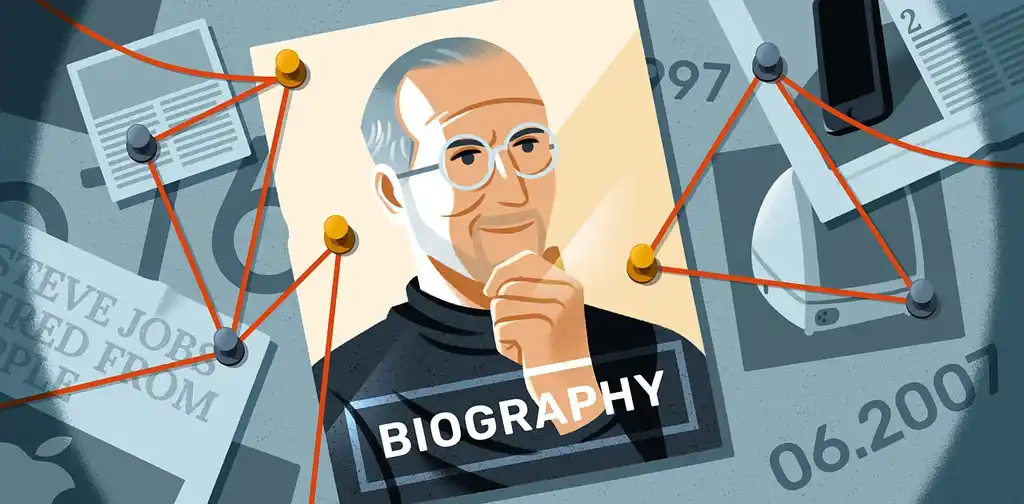
FREE RESOURCE
Biography Outline Template
Craft a satisfying story arc for your biography with our free template.
While you technically don’t need permission to write about public figures (or deceased ones), that doesn't guarantee their legal team won't pursue legal action against you. Author Kitty Kelley was sued by Frank Sinatra before she even started to write His Way , a biography that paints Ol Blue Eyes in a controversial light. (Kelley ended up winning the lawsuit, however).

Whenever feasible, advise the subject’s representatives of your intentions. If all goes according to plan, you’ll get a green light to proceed, or potentially an offer to collaborate. It's a matter of common sense; if someone were to write a book about you, you would likely want to know about it well prior to publication. So, make a sincere effort to reach out to their PR staff to negotiate an agreement or at least a mutual understanding of the scope of your project.
At the same time, make sure that you still retain editorial control over the project, and not end up writing a puff piece that treats its protagonist like a saint or hero. No biography can ever be entirely objective, but you should always strive for a portrayal that closely aligns with facts and reality.
If you can’t get an answer from your subject, or you’re asked not to proceed forward, you can still accept the potential repercussions and write an unauthorized biography . The “rebellious act” of publishing without consent indeed makes for great marketing, though it’ll likely bring more headaches with it too.
✋ Please note that, like other nonfiction books, if you intend to release your biography with a publishing house , you can put together a book proposal to send to them before you even write the book. If they like it enough, they might pay you an advance to write it.
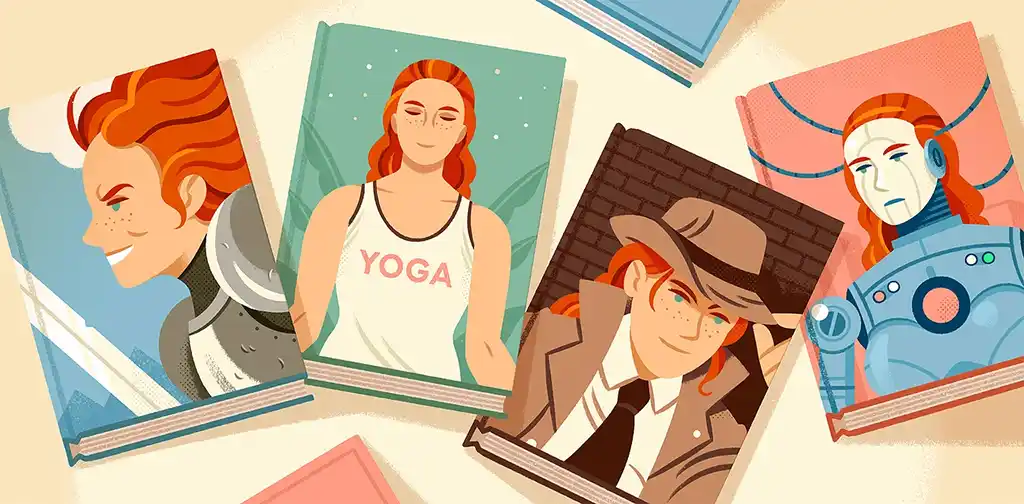
Book Proposal Template
Craft a professional pitch for your nonfiction book with our handy template.
Once you’ve settled (or not) the permission part, it’s time to dive deep into your character’s story.
Deep and thorough research skills are the cornerstone of every biographer worth their salt. To paint a vivid and accurate portrait of someone's life, you’ll have to gather qualitative information from a wide range of reliable sources.
Start with the information already available, from books on your subject to archival documents, then collect new ones firsthand by interviewing people or traveling to locations.
Browse the web and library archives
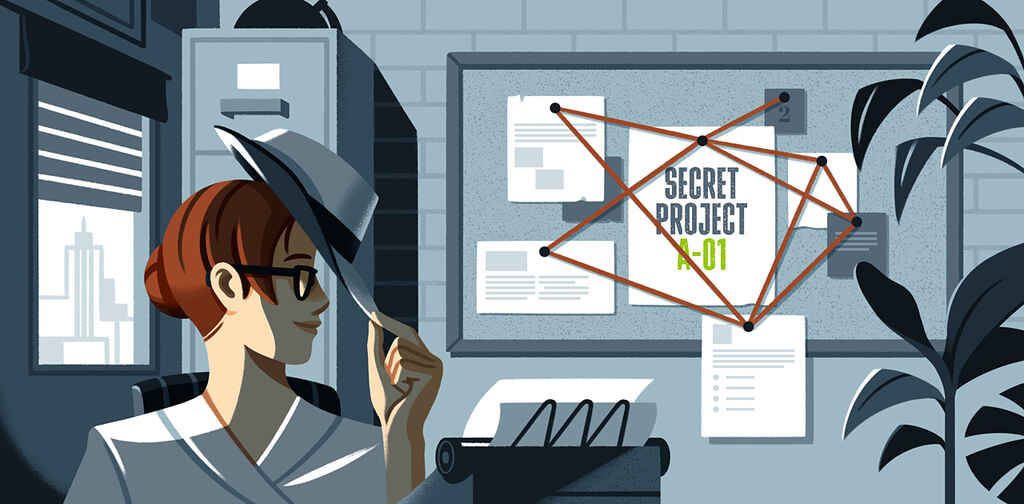
Put your researcher hat on and start consuming any piece on your subject you can find, from their Wikipedia page to news articles, interviews, TV and radio appearances, YouTube videos, podcasts, books, magazines, and any other media outlets they may have been featured in.
Establish a system to orderly collect the information you find 一 even seemingly insignificant details can prove valuable during the writing process, so be sure to save them.
Depending on their era, you may find most of the information readily available online, or you may need to search through university libraries for older references.
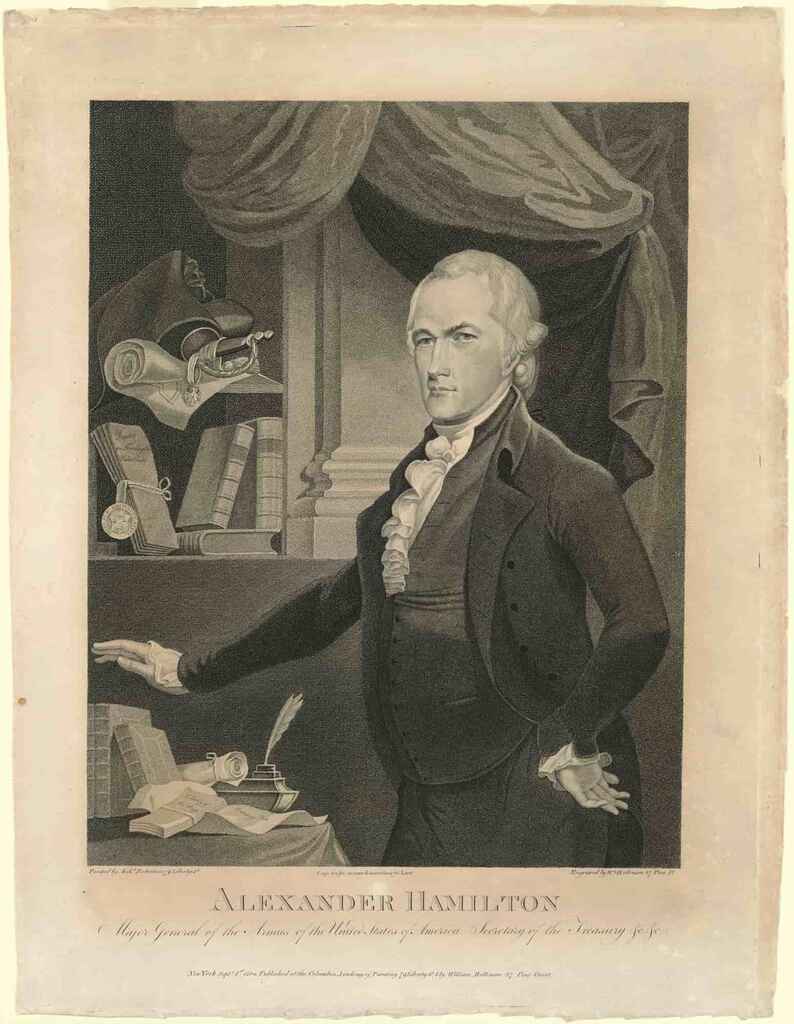
For his landmark biography of Alexander Hamilton, Ron Chernow spent untold hours at Columbia University’s library , reading through the Hamilton family papers, visiting the New York Historical Society, as well as interviewing the archivist of the New York Stock Exchange, and so on. The research process took years, but it certainly paid off. Chernow discovered that Hamilton created the first five securities originally traded on Wall Street. This finding, among others, revealed his significant contributions to shaping the current American financial and political systems, a legacy previously often overshadowed by other founding fathers. Today Alexander Hamilton is one of the best-selling biographies of all time, and it has become a cultural phenomenon with its own dedicated musical.
Besides reading documents about your subject, research can help you understand the world that your subject lived in.
Try to understand their time and social environment
Many biographies show how their protagonists have had a profound impact on society through their philosophical, artistic, or scientific contributions. But at the same time, it’s worth it as a biographer to make an effort to understand how their societal and historical context influenced their life’s path and work.
An interesting example is Stephen Greenblatt’s Will in the World . Finding himself limited by a lack of verified detail surrounding William Shakespeare's personal life, Greenblatt, instead, employs literary interpretation and imaginative reenactments to transport readers back to the Elizabethan era. The result is a vivid (though speculative) depiction of the playwright's life, enriching our understanding of his world.

Many readers enjoy biographies that transport them to a time and place, so exploring a historical period through the lens of a character can be entertaining in its own right. The Diary of Samuel Pepys became a classic not because people were enthralled by his life as an administrator, but rather from his meticulous and vivid documentation of everyday existence during the Restoration period.
Once you’ve gotten your hands on as many secondary sources as you can find, you’ll want to go hunting for stories first-hand from people who are (or were) close to your subject.
With all the material you’ve been through, by now you should already have a pretty good picture of your protagonist. But you’ll surely have some curiosities and missing dots in their character arc to figure out, which you can only get by interviewing primary sources.
Interview friends and associates
This part is more relevant if your subject is contemporary, and you can actually meet up or call with relatives, friends, colleagues, business partners, neighbors, or any other person related to them.
In writing the popular biography of Steve Jobs, Walter Isaacson interviewed more than one hundred people, including Jobs’s family, colleagues, former college mates, business rivals, and the man himself.
🔍 Read other biographies to get a sense of what makes a great one. Check out our list of the 30 best biographies of all time , or take our 30-second quiz below for tips on which one you should read next.
Which biography should you read next?
Discover the perfect biography for you. Takes 30 seconds!
When you conduct your interviews, make sure to record them with high quality audio you can revisit later. Then use tools like Otter.ai or Descript to transcribe them 一 it’ll save you countless hours.
You can approach the interview with a specific set of questions, or follow your curiosity blindly, trying to uncover revealing stories and anecdotes about your subject. Whatever your method, author and biography editor Tom Bromley suggests that every interviewer arrives prepared, "Show that you’ve done your work. This will help to put the interviewee at ease, and get their best answers.”
Bromley also places emphasis on the order in which you conduct interviews. “You may want to interview different members of the family or friends first, to get their perspective on something, and then go directly to the main interviewee. You'll be able to use that knowledge to ask sharper, more specific questions.”
Finally, consider how much time you have with each interviewee. If you only have a 30-minute phone call with an important person, make it count by asking directly the most pressing questions you have. And, if you find a reliable source who is also particularly willing to help, conduct several interviews and ask them, if appropriate, to write a foreword as part of the book’s front matter .
Sometimes an important part of the process is packing your bags, getting on a plane, and personally visiting significant places in your character’s journey.
Visit significant places in their life
A place, whether that’s a city, a rural house, or a bodhi tree, can carry a particular energy that you can only truly experience by being there. In putting the pieces together about someone’s life, it may be useful to go visit where they grew up, or where other significant events of their lives happened. It will be easier to imagine what they experienced, and better tell their story.
In researching The Lost City of Z , author David Grann embarked on a trek through the Amazon, retracing the steps of British explorer Percy Fawcett. This led Grann to develop new theories about the circumstances surrounding the explorer's disappearance.
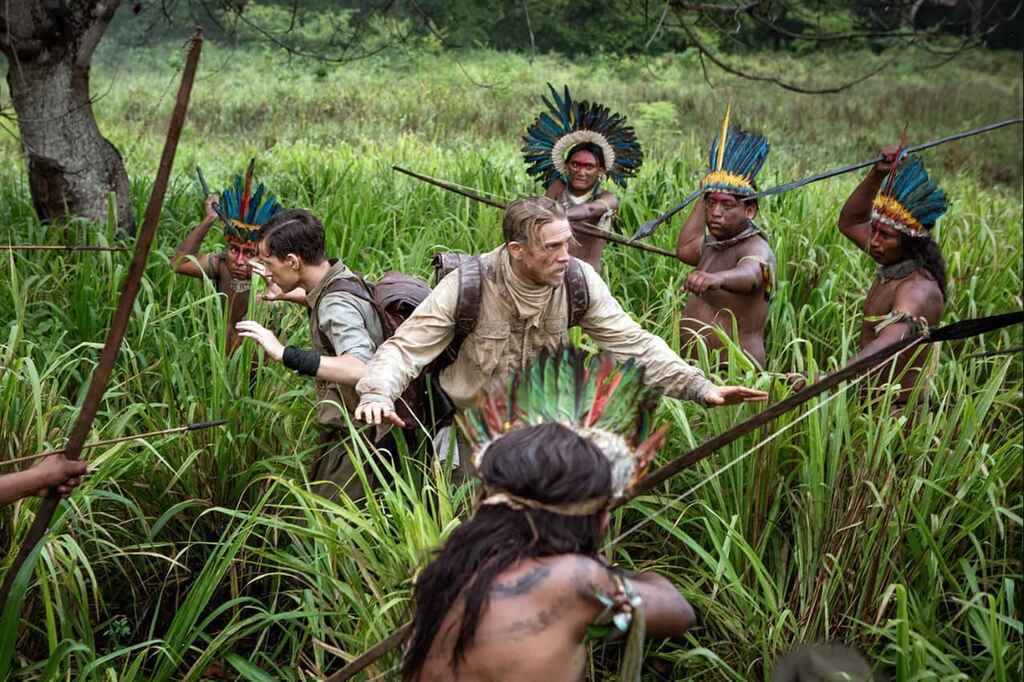
Hopefully, you won’t have to deal with jaguars and anacondas to better understand your subject’s environment, but try to walk into their shoes as much as possible.
Once you’ve researched your character enough, it’s time to put together all the puzzle pieces you collected so far.
Take the bulk of notes, media, and other documents you’ve collected, and start to give them some order and structure. A simple way to do this is by creating a timeline.
Create a chronological timeline
It helps to organize your notes chronologically 一 from childhood to the senior years, line up the most significant events of your subject’s life, including dates, places, names and other relevant bits.
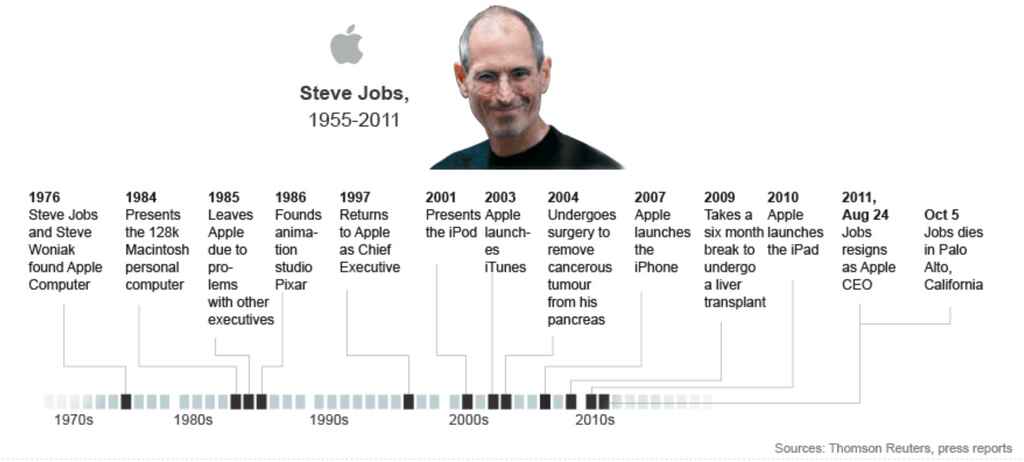
You should be able to divide their life into distinct periods, each with their unique events and significance. Based on that, you can start drafting an outline of the narrative you want to create.
Draft a story outline
Since a biography entails writing about a person’s entire life, it will have a beginning, a middle, and an end. You can pick where you want to end the story, depending on how consequential the last years of your subject were. But the nature of the work will give you a starting character arc to work with.
To outline the story then, you could turn to the popular Three-Act Structure , which divides the narrative in three main parts. In a nutshell, you’ll want to make sure to have the following:
- Act 1. Setup : Introduce the protagonist's background and the turning points that set them on a path to achieve a goal.
- Act 2. Confrontation : Describe the challenges they encounter, both internal and external, and how they rise to them. Then..
- Act 3. Resolution : Reach a climactic point in their story in which they succeed (or fail), showing how they (and the world around them) have changed as a result.
Only one question remains before you begin writing: what will be the main focus of your biography?
Think about why you’re so drawn to your subject to dedicate years of your life to recounting their own. What aspect of their life do you want to highlight? Is it their evil nature, artistic genius, or visionary mindset? And what evidence have you got to back that up? Find a central thesis or focus to weave as the main thread throughout your narrative.
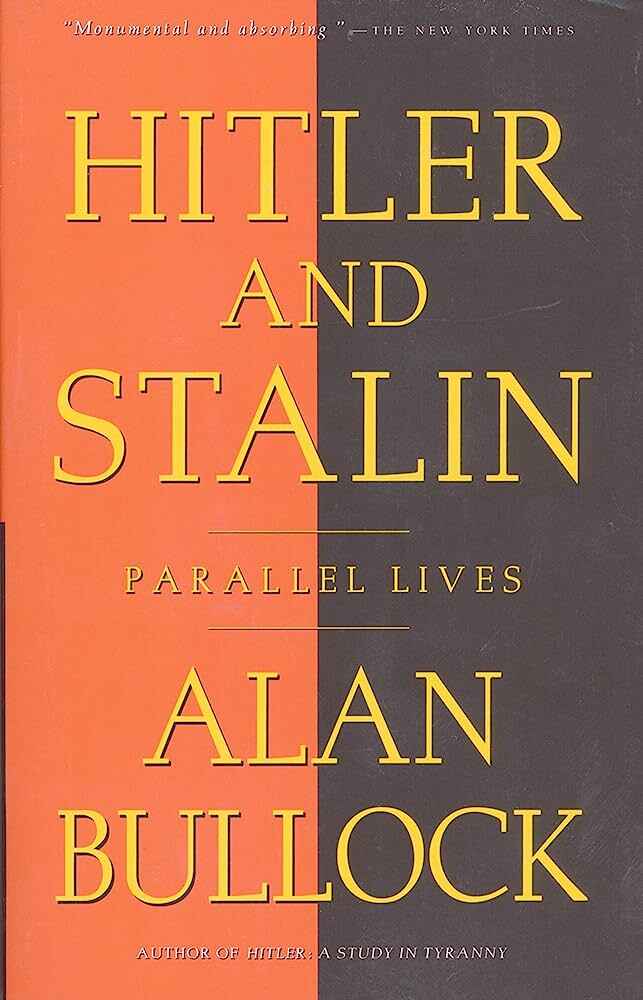
Or find a unique angle
If you don’t have a particular theme to explore, finding a distinct angle on your subject’s story can also help you distinguish your work from other biographies or existing works on the same subject.
Plenty of biographies have been published about The Beatles 一 many of which have different focuses and approaches:
- Philip Norman's Shout is sometimes regarded as leaning more towards a pro-Lennon and anti-McCartney stance, offering insights into the band's inner dynamics.
- Ian McDonald's Revolution in the Head closely examines their music track by track, shifting the focus back to McCartney as a primary creative force.
- Craig Brown's One Two Three Four aims to capture their story through anecdotes, fan letters, diary entries, and interviews.
- Mark Lewisohn's monumental three-volume biography, Tune In , stands as a testament to over a decade of meticulous research, chronicling every intricate detail of the Beatles' journey.
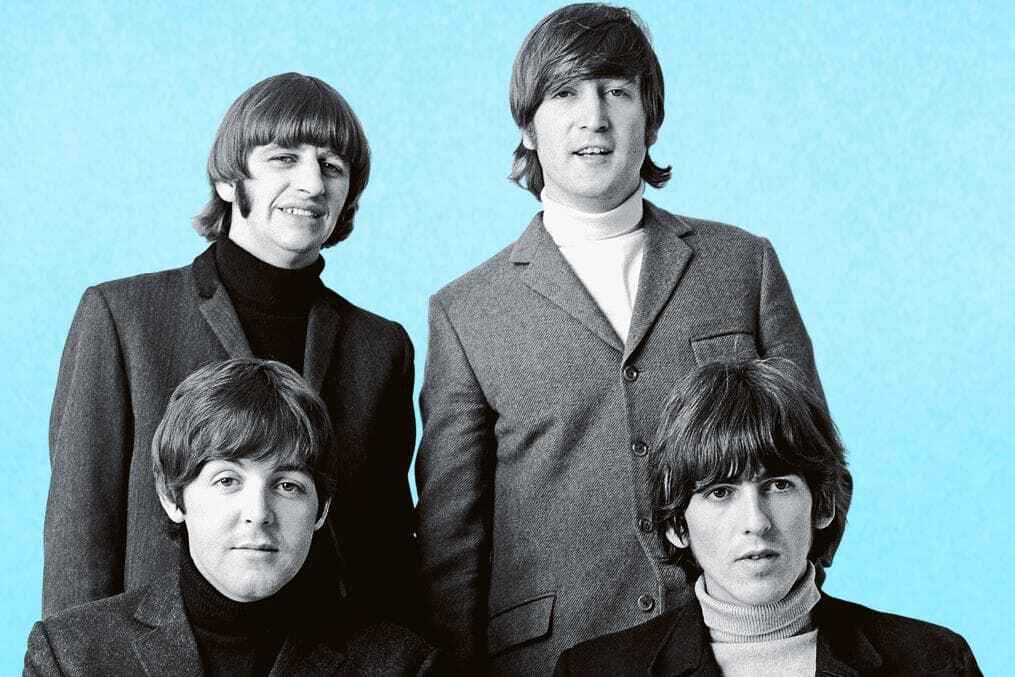
Finally, consider that biographies are often more than recounting the life of a person. Similar to how Dickens’ Great Expectations is not solely about a boy named Pip (but an examination and critique of Britain’s fickle, unforgiving class system), a biography should strive to illuminate a broader truth — be it social, political, or human — beyond the immediate subject of the book.
Once you’ve identified your main focus or angle, it’s time to write a great story.
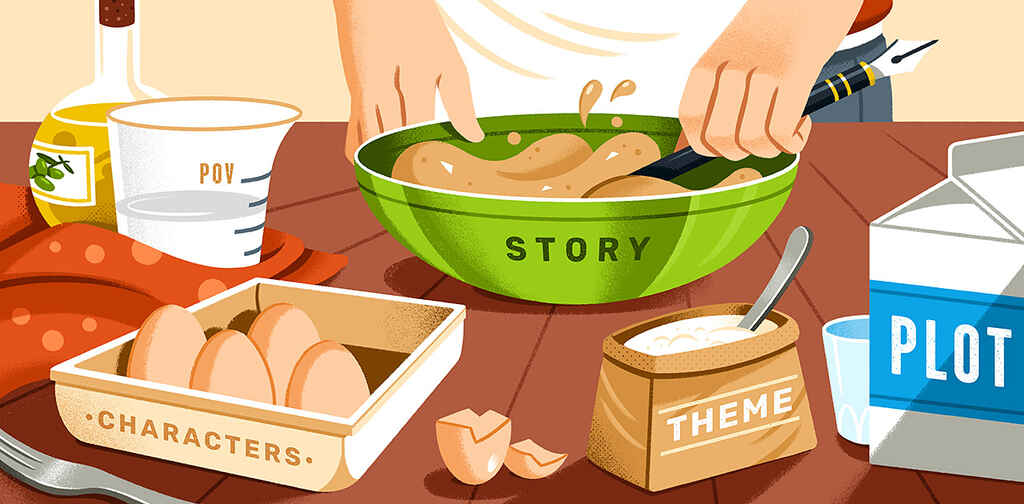
While biographies are often highly informative, they do not have to be dry and purely expository in nature . You can play with storytelling elements to make it an engaging read.
You could do that by thoroughly detailing the setting of the story , depicting the people involved in the story as fully-fledged characters , or using rising action and building to a climax when describing a particularly significant milestone of the subject’s life.
One common way to make a biography interesting to read is starting on a strong foot…
Hook the reader from the start
Just because you're honoring your character's whole life doesn't mean you have to begin when they said their first word. Starting from the middle or end of their life can be more captivating as it introduces conflicts and stakes that shaped their journey.
When he wrote about Christopher McCandless in Into the Wild , author Jon Krakauer didn’t open his subject’s childhood and abusive family environment. Instead, the book begins with McCandless hitchhiking his way into the wilderness, and subsequently being discovered dead in an abandoned bus. By starting in medias res , Krakauer hooks the reader’s interest, before tracing back the causes and motivations that led McCandless to die alone in that bus in the first place.
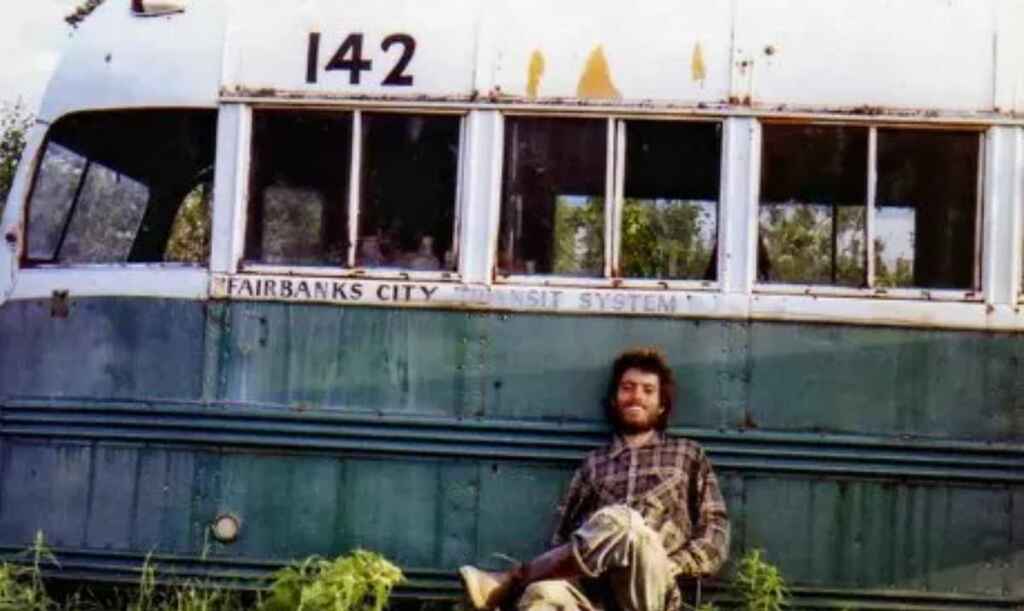
You can bend the timeline to improve the reader’s reading experience throughout the rest of the story too…
Play with flashback
While biographies tend to follow a chronological narrative, you can use flashbacks to tell brief stories or anecdotes when appropriate. For example, if you were telling the story of footballer Lionel Messi, before the climax of winning the World Cup with Argentina, you could recall when he was just 13 years old, giving an interview to a local newspaper, expressing his lifelong dream of playing for the national team.
Used sparsely and intentionally, flashbacks can add more context to the story and keep the narrative interesting. Just like including dialogue does…
Reimagine conversations
Recreating conversations that your subject had with people around them is another effective way to color the story. Dialogue helps the reader imagine the story like a movie, providing a deeper sensory experience.

One thing is trying to articulate the root of Steve Jobs’ obsession with product design, another would be to quote his father , teaching him how to build a fence when he was young: “You've got to make the back of the fence just as good looking as the front of the fence. Even though nobody will see it, you will know. And that will show that you're dedicated to making something perfect.”
Unlike memoirs and autobiographies, in which the author tells the story from their personal viewpoint and enjoys greater freedom to recall conversations, biographies require a commitment to facts. So, when recreating dialogue, try to quote directly from reliable sources like personal diaries, emails, and text messages. You could also use your interview scripts as an alternative to dialogue. As Tom Bromley suggests, “If you talk with a good amount of people, you can try to tell the story from their perspective, interweaving different segments and quoting the interviewees directly.”

FREE COURSE
How to Write Believable Dialogue
Master the art of dialogue in 10 five-minute lessons.
These are just some of the story elements you can use to make your biography more compelling. Once you’ve finished your manuscript, it’s a good idea to ask for feedback.
If you’re going to self-publish your biography, you’ll have to polish it to professional standards. After leaving your work to rest for a while, look at it with fresh eyes and self-edit your manuscript eliminating passive voice, filler words, and redundant adverbs.
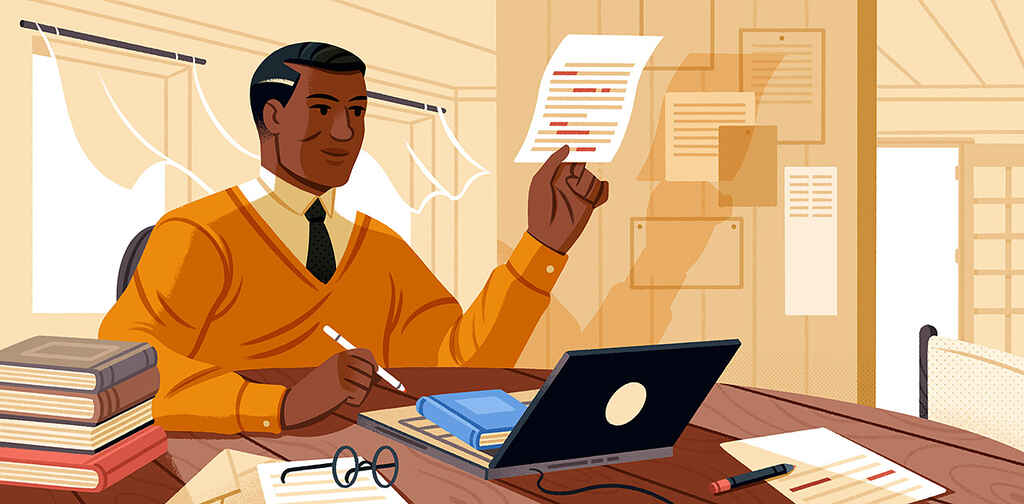
Then, have a professional editor give you a general assessment. They’ll look at the structure and shape of your manuscript and tell you which parts need to be expanded on or cut. As someone who edited and commissioned several biographies, Tom Bromley points out that a professional “will look at the sources used and assess whether they back up the points made, or if more are needed. They would also look for context, and whether or not more background information is needed for the reader to understand the story fully. And they might check your facts, too.”
In addition to structural editing, you may want to have someone copy-edit and proofread your work.
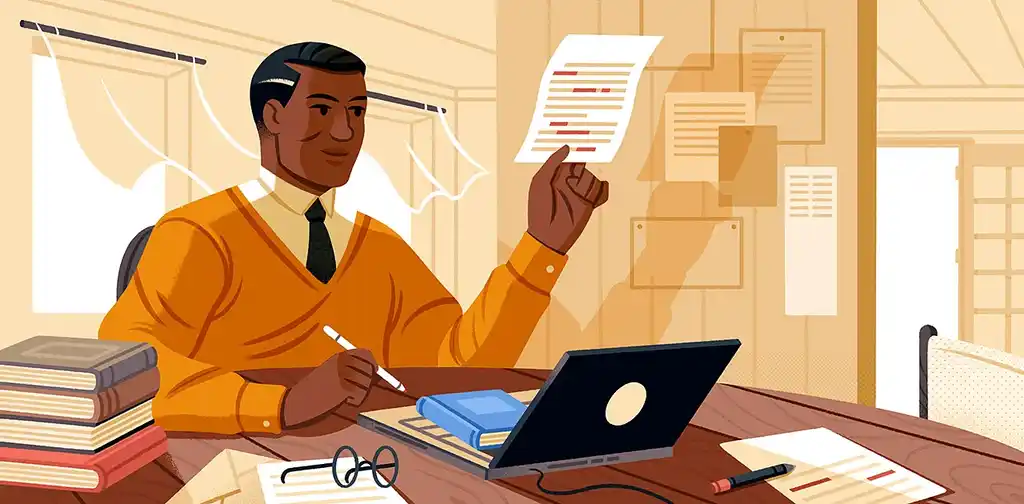
MEET EDITORS
Polish your book with expert help
Sign up, meet 1500+ experienced editors, and find your perfect match.
Importantly, make sure to include a bibliography with a list of all the interviews, documents, and sources used in the writing process. You’ll have to compile it according to a manual of style, but you can easily create one by using tools like EasyBib . Once the text is nicely polished and typeset in your writing software , you can prepare for the publication process.
In conclusion, by mixing storytelling elements with diligent research, you’ll be able to breathe life into a powerful biography that immerses readers in another individual’s life experience. Whether that’ll spark inspiration or controversy, remember you could have an important role in shaping their legacy 一 and that’s something not to take lightly.
Continue reading
Recommended posts from the Reedsy Blog

Writing Cozy Mysteries: 7 Essential Tips & Tropes
We show you how to write a compelling cozy mystery with advice from published authors and supporting examples from literature.

Man vs Nature: The Most Compelling Conflict in Writing
What is man vs nature? Learn all about this timeless conflict with examples of man vs nature in books, television, and film.

The Redemption Arc: Definition, Examples, and Writing Tips
Learn what it takes to redeem a character with these examples and writing tips.

How Many Sentences Are in a Paragraph?
From fiction to nonfiction works, the length of a paragraph varies depending on its purpose. Here's everything you need to know.

Narrative Structure: Definition, Examples, and Writing Tips
What's the difference between story structure and narrative structure? And how do you choose the right narrative structure for you novel?

What is the Proust Questionnaire? 22 Questions to Write Better Characters
Inspired by Marcel Proust, check out the questionnaire that will help your characters remember things past.
Join a community of over 1 million authors
Reedsy is more than just a blog. Become a member today to discover how we can help you publish a beautiful book.
We have an app for that
Build a writing routine with our free writing app.

1 million authors trust the professionals on Reedsy. Come meet them.
Enter your email or get started with a social account:
How to Write a Biography
Learn how to write a biography with our comprehensive guide.

Last updated on Dec 8th, 2023
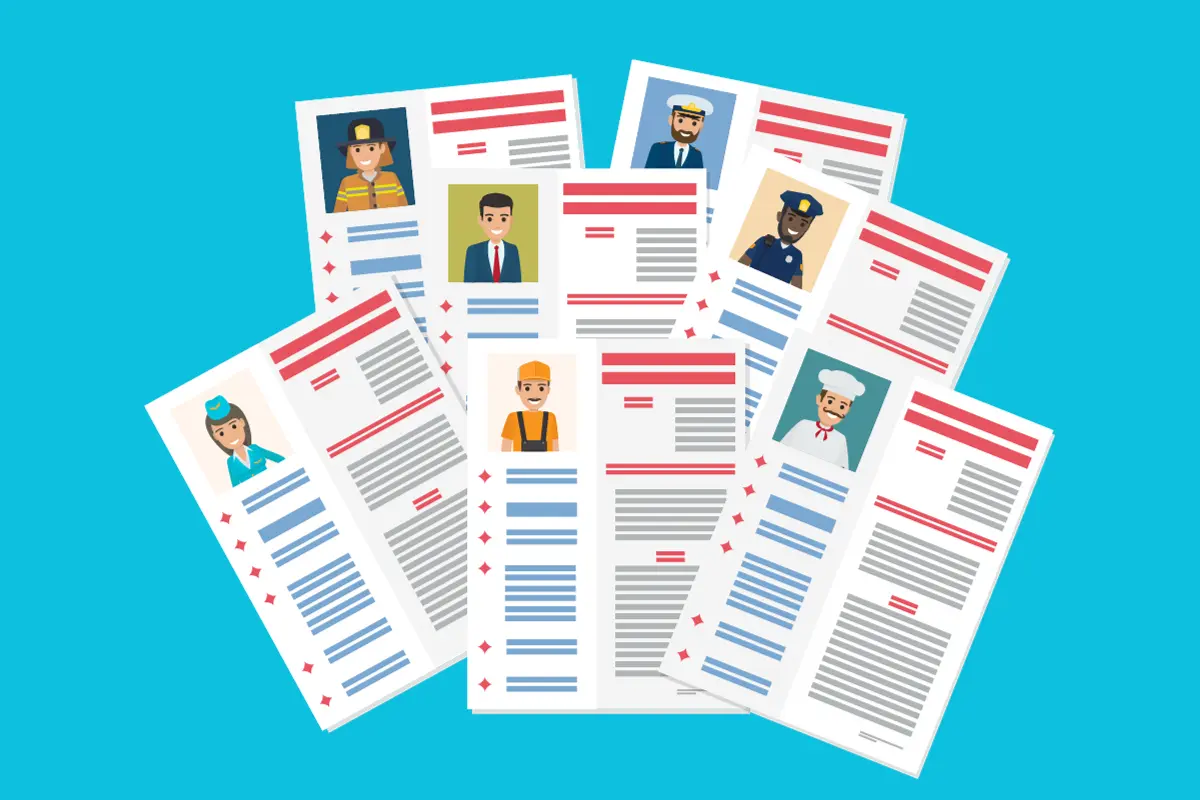
When you click on affiliate links on QuillMuse.com and make a purchase, you won’t pay a penny more, but we’ll get a small commission—this helps us keep up with publishing valuable content on QuillMuse. Read More .
Table of Contents
How to write a biography can be a fun challenge as you share someone’s life story with readers. You may need to write a biography for a class or decide to write a biography as a personal project. Once you’ve identified the subject of your biography, do your research to learn as much as you can about them. Then, immerse yourself in writing the biography and revising it until it’s best. What I am going to share with you in today’s post is how to write a biography. If you want to know the rules of how to write a biography correctly then this post of ours is essential for you.
Introduction
While it’s true that most biographies involve people in the public eye, sometimes the subject is less well-known. But most of the time, famous or not, the person we’re talking about has an incredible life. Although your students may have a basic understanding of How to write a biography, you should take some time before putting pen to paper to come up with a very clear definition of biography.
Before knowing how to write a biography, let’s first understand what a biography is. A biography is an account of a person’s life written by someone else. Although there is a genre called fictional biography, by definition biographies are mostly non-fiction. In general, biographies trace the subject’s life from early childhood to the present day or until death if the subject is deceased.
Biography writing is not limited to describing the bare facts of a person’s life. Instead of just listing basic details about their upbringing, interests, education, work, relationships, and deaths, a well-written biography should also paint a picture of a person’s personality as well as that person’s life experiences.
Tips and Tricks For How To Write a Biography
1. ask the subject’s permission to write a biography.
Here are the first tips on how to write a biography. Before starting your research, make sure you get your subject’s consent to write their biography. Ask them if they’re ready to be the subject. Getting their permission will make writing a biography much easier and ensure that they are open to information about their lives.
If the theme does not allow you to write a bio, you can choose another theme. If you decide to publish a profile without the subject’s permission, you may be subject to legal action from the subject.
If the topic no longer exists, you don’t need to ask permission to write about them.
2. Research primary sources on the topic
Primary sources may include books, letters, photographs, diaries, newspaper clippings, magazines, Internet articles, magazines, videos, interviews, existing biographies, or autobiographies on the subject. Find these resources in your local library or online. Read as much as you can about the topic and highlight any important information you come across in your sources.
You can create research questions to help you focus your research on this topic, such as:
What do I find interesting about this topic? Why is this topic important to readers?
3. Conduct interviews with subjects and their relatives
Interviewing people will turn your research into reality: the people you interview will be able to tell you stories you can’t find in history books. Interview the subject as well as people close to them, such as spouses, friends, business associates, family members, co-workers, and friends. Interview in person, over the phone, or via email.
For in-person interviews, record them with a voice recorder or voice recorder on your computer or phone. You may need to interview the subject and others multiple times to get the documents you need.
4. Visit places important to the topic
Whenever you want to know how to write a biography, to understand the history of the subject, spend time in places and areas that are significant to the subject. This may be the subject’s childhood home or neighborhood. You can also visit the subject’s workplace and regular meeting places.
You may also want to visit areas where the subject made important decisions or breakthroughs in their life. Being physically present in the area can give you an idea of what your subjects may have felt and help you write about their experiences more effectively.
5. Research the time and place of the subject’s life
Contextualize your subject’s life by observing what’s going on around them. Consider the period in which they grew up as well as the history of the places they lived. Study the economics, politics, and culture of their time. See current events happening where they live or work.
When you studying how to write a biography, ask yourself about time and place:
What were the social norms of this period?
What happened economically and politically?
How has the political and social environment influenced this topic?
6. Make a timeline of a person’s life
To help you organize your research, create a timeline of a person’s entire life, from birth. Draw a long line on a piece of paper and sketch out as many details about a person’s life as possible. Highlight important events or moments on the timeline. Include important dates, locations, and names.
If you think about how to write a biography You can also include historical events or moments that affect the topic in the timeline. For example, a conflict or civil war may occur during a person’s lifetime and affect their life.
7. Focus on important events and milestones
Major events can include marriage, birth, or death during a person’s lifetime. They may also achieve milestones like their first successful business venture or their first civil rights march. Highlights key moments in a person’s life so readers clearly understand what’s important to that person and how they influence the world around them.
For example, you might focus on one person’s achievements in the civil rights movement. You could write an entire section about their contributions and participation in major civil rights marches in their hometowns.
8. Cite all sources used in biography
Most biographies will include information from sources such as books, journal articles, magazines, and interviews. Remember to cite any sources that you directly quote or paraphrase. You can use citations, footnotes, or endnotes. If the biography is for a course, use MLA, APA, or Chicago Style citations according to your instructor’s preference.
9. Reread the biography
Check the biography for spelling, grammar, and punctuation. Circle all punctuation marks in the text to confirm they are correct. Read the text backward to check for spelling and grammar errors.
Having a biography full of spelling, grammar, and punctuation errors can frustrate readers and lead to poor grades if you submit your work to the class.
10. Show your biography to others to get their feedback
It is a momentous step of how to write a biography. Once you have completed your draft biography, show it to your colleagues, friends, teachers, and mentors to get their feedback. Ask them if they have a good understanding of someone’s life and if the biography is easy to read. Be open to feedback so you can improve the biography and make it error-free. Revise profile based on feedback from others. Don’t be afraid to trim or edit your biography to suit your readers’ needs.
11. Use flashbacks
Flashbacks happen when you move from the present to the past. You can start with the present moment, and then bring in a scene from the person’s past. Or you could have one chapter focusing on the present and one focusing on the past, alternating as you go.
The flashback scene must be as detailed and realistic as the present-day scene. Use your research notes and interviews with subjects to better understand their past to reminisce.
For example, you can move from a person’s death in the present to reminiscing about their favorite childhood memory.
12. Outline Your Story Chronologically
This is another important step in how to write a biography is to write an outline that describes your story in chronological order. An outline is a tool that helps you visualize the structure and key elements of your story. This can help you organize your story into chapters and sections.
You can write your plan in a digital document or draw it with pen and paper. Remember to store your outline in an easily accessible place so you can refer to it throughout the writing process.
What citation style should I use for my biography?
Use MLA, APA, or Chicago Style citations based on your instructor’s preference when citing sources in your biography.
Should I include personal opinions in a biography?
No, a biography should be objective and based on facts. Avoid injecting personal opinions or bias into the narrative.
What’s the difference between a biography and an autobiography?
A biography is written by someone else about a person’s life, while an autobiography is written by the subject themselves about their own life.
Can I write a biography about a living person?
Yes, you can write a biography about a living person with their consent. Ensure you respect their privacy and follow ethical guidelines when writing about them.
Conclusion
Other than creating a sense of closure, there are no set rules about how a biography ends. An author may want to summarize their main points about the subject of their biography. If the person is still alive, the author can inform the reader about their condition or circumstances. If the person has died, inheritance can be discussed. Authors can also remind readers how they can learn from the biographical subject. Sharing a closing quote or about a person can leave the audience with a point to consider or discuss in more detail.
For further insights into writing and to avoid common mistakes, check out our article on Most Common Mistakes in Writing . Additionally, explore the Best Writing Tools for Writers to enhance your writing skills and discover the tools that can assist you. If you’re looking to improve your typing speed and accuracy, our article on How to Type Faster with Accuracy offers valuable tips.
How we've reviewed this article
Our content is thoroughly researched and fact-checked using reputable sources. While we aim for precision, we encourage independent verification for complete confidence.
We keep our articles up-to-date regularly to ensure accuracy and relevance as new information becomes available.
- Current Version
- Dec 8th, 2023
- Oct 22nd, 2023
Share this article
Leave a Comment Login Please login to comment 0 Comments Inline Feedbacks View all comments
Prev Previous Next Next
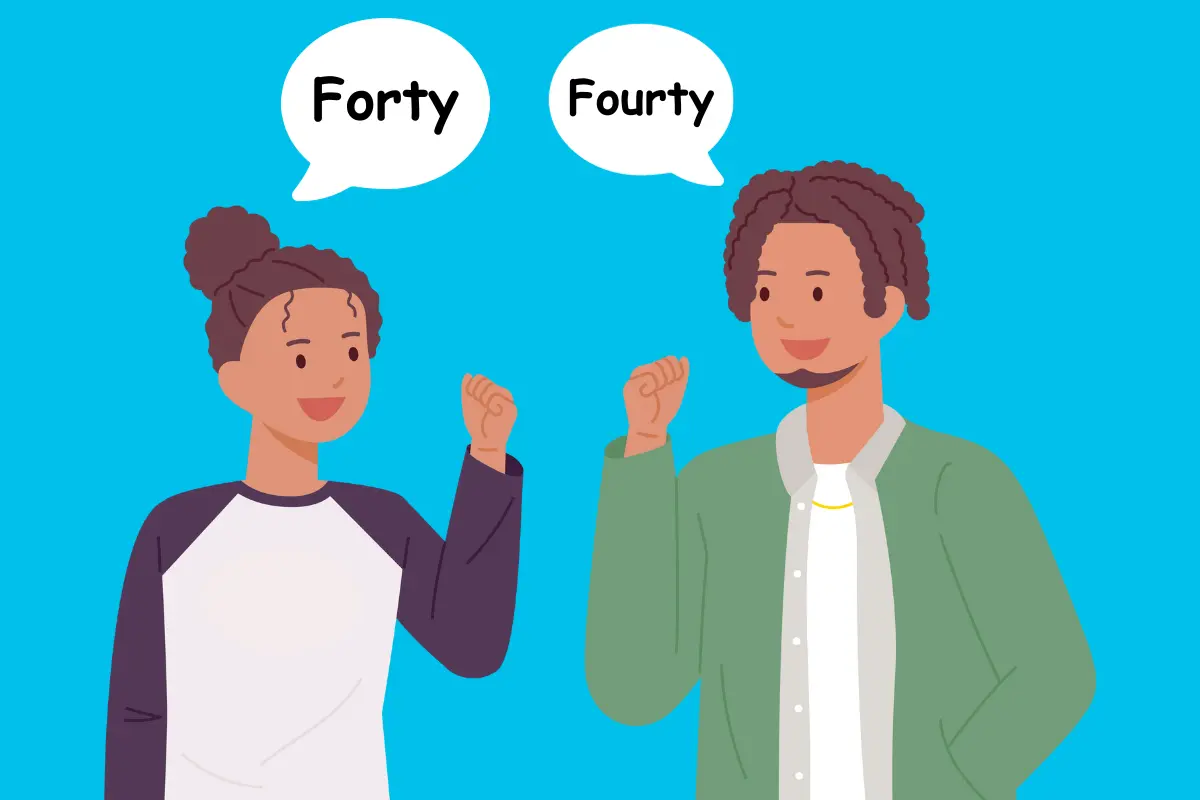
Forty or Fourty: Which is Correct
Have you ever found yourself unsure about which spelling to use when writing the number 40? It’s a common problem that many people face, but fear not! In this article, we will explore the differences between forty and fourty and provide examples to help you understand when to use each

How to Write a Letter With Format, Examples, and Tips
Writing letters can seem to be out of date. But hold on! Even today, a well-written letter has a unique power. It allows for a deeper connection, a lasting impact, and can even sharpen your communication skills. Whether you’re reaching out to a loved one, applying for a dream job,
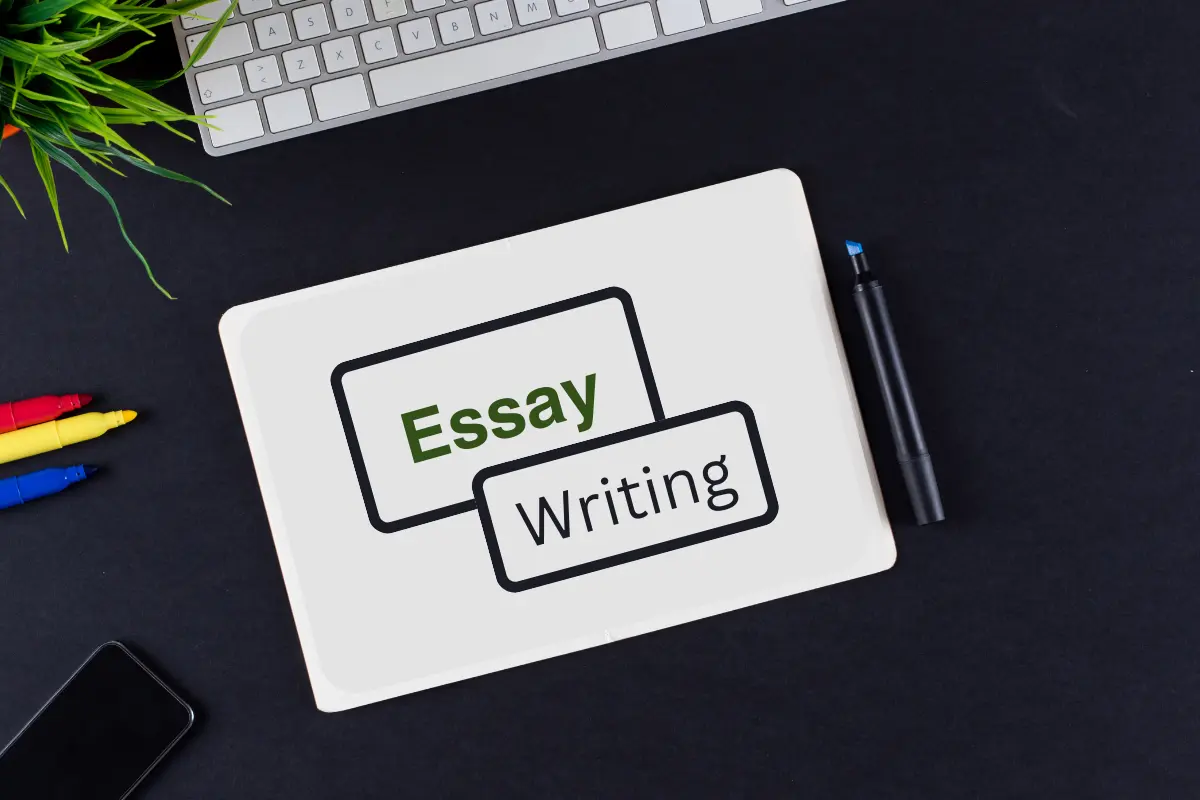
How to Write an Essay: A Three-Step Guide with Examples
Is the essay deadline making you nervous? Do you ever look at the flashing line on your computer screen and want to write something, but just can’t think of anything and feel stuck? Fear not, a fellow student or maybe even a writer facing a new challenge! This guide is
Report this article
Let us know if you notice any incorrect information about this article or if it was copied from others. We will take action against this article ASAP.
- Profile Page
- Edit Profile
- Add New Post
Read our Content Writing Guide .
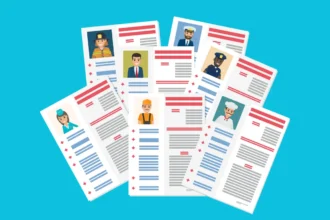
- PRO Courses Guides New Tech Help Pro Expert Videos About wikiHow Pro Upgrade Sign In
- EDIT Edit this Article
- EXPLORE Tech Help Pro About Us Random Article Quizzes Request a New Article Community Dashboard This Or That Game Popular Categories Arts and Entertainment Artwork Books Movies Computers and Electronics Computers Phone Skills Technology Hacks Health Men's Health Mental Health Women's Health Relationships Dating Love Relationship Issues Hobbies and Crafts Crafts Drawing Games Education & Communication Communication Skills Personal Development Studying Personal Care and Style Fashion Hair Care Personal Hygiene Youth Personal Care School Stuff Dating All Categories Arts and Entertainment Finance and Business Home and Garden Relationship Quizzes Cars & Other Vehicles Food and Entertaining Personal Care and Style Sports and Fitness Computers and Electronics Health Pets and Animals Travel Education & Communication Hobbies and Crafts Philosophy and Religion Work World Family Life Holidays and Traditions Relationships Youth
- Browse Articles
- Learn Something New
- Quizzes Hot
- This Or That Game
- Train Your Brain
- Explore More
- Support wikiHow
- About wikiHow
- Log in / Sign up
- Education and Communications
How to Write a Biography
Last Updated: April 13, 2024 Fact Checked
This article was co-authored by Stephanie Wong Ken, MFA . Stephanie Wong Ken is a writer based in Canada. Stephanie's writing has appeared in Joyland, Catapult, Pithead Chapel, Cosmonaut's Avenue, and other publications. She holds an MFA in Fiction and Creative Writing from Portland State University. There are 7 references cited in this article, which can be found at the bottom of the page. This article has been fact-checked, ensuring the accuracy of any cited facts and confirming the authority of its sources. This article has been viewed 1,856,966 times.
Writing a biography can be a fun challenge, where you are sharing the story of someone’s life with readers. You may need to write a biography for a class or decide to write one as a personal project. Once you have identified the subject of the biography, do your research so you know as much about them as possible. Then, dive into the writing of the biography and revising it until it is at its finest.
Researching Your Subject

- If the subject does not give you permission to write the biography, you may want to choose a different subject. If you decide to publish the biography without the subject’s permission, you may be susceptible to legal action by the subject.
- If the subject is no longer alive, you obviously do not need to ask permission to write about them.

- You may create research questions to help focus your research of the subject, such as, What do I find interesting about the subject? Why is this subject important to readers? What can I say that is new about the subject? What would I like to learn more about?

- For in person interviews, record them with a tape recorder or a voice recorder on your computer or phone.
- You may need to interview the subject and others several times to get the material you need.

- You may also want to visit areas where the subject made a major decision or breakthrough in their life. Being physically in the area can give you a sense of how the subject might have felt and help you write their experiences more effectively.

- When researching the time period ask yourself: What were the social norms of that time? What was going on economically and politically? How did the social and political climate affect the subject?

- You may also include historical events or moments that affected the subject on the timeline. For example, maybe there was a conflict or civil war that happened during the person’s life that affected their life.
Writing the Biography

- You may end up focusing on particular areas of the person’s life. If you do this, work through a particular period in the person’s life chronologically.

- For example, you may have a thesis statement about focusing on how the person impacted the civil rights movement in America in the 1970s. You can then make sure all your content relates back to this thesis.

- Flashbacks should feel as detailed and real as present day scenes. Use your research notes and interviews with the subject to get a good sense of their past for the flashbacks.
- For example, you may jump from the person’s death in the present to a flashback to their favorite childhood memory.

- For example, you may focus on the person’s accomplishments in the civil rights movement. You may write a whole section about their contributions and participation in major civil rights marches in their hometown.

- For example, you may notice that the person’s life is patterned with moments of adversity, where the person worked hard and fought against larger forces. You can then use the theme of overcoming adversity in the biography.

- For example, you may note how you see parallels in the person’s life during the civil rights movement with your own interests in social justice. You may also commend the person for their hard work and positive impact on society.
Polishing the Biography

- Revise the biography based on feedback from others. Do not be afraid to cut or edit down the biography to suit the needs of your readers.

- Having a biography riddled with spelling, grammar, and punctuation errors can turn off your readers and result in a poor grade if you are handing in the text for a class.

- If the biography is for a class, use MLA , APA , or Chicago Style citations based on the preferences of your instructor.
Biography Help

Community Q&A
- Be careful when publishing private or embarrassing information, especially if the person is not a celebrity. You may violate their "Right of Privacy" or equivalent. Thanks Helpful 31 Not Helpful 5
- Have the sources to back up your statements about the subject's life. Untruthful written statements can lead to litigation. If it is your opinion, be clear that it is such and not fact (although you can support your opinion with facts). Thanks Helpful 16 Not Helpful 15

You Might Also Like

- ↑ http://grammar.yourdictionary.com/writing/how-to-write-a-biography.html
- ↑ https://au.indeed.com/career-advice/career-development/how-to-write-a-bio
- ↑ https://grammar.yourdictionary.com/writing/how-to-write-a-biography.html
- ↑ https://www.writersdigest.com/writing-articles/3-tips-for-writing-successful-flashbacks
- ↑ https://www.grammarly.com/blog/how-to-write-bio/
- ↑ https://writingcenter.unc.edu/tips-and-tools/editing-and-proofreading/
- ↑ https://www.plagiarism.org/article/how-do-i-cite-sources
About This Article

Before you write a biography, gather as much information about the subject that you can from sources like newspaper articles, interviews, photos, existing biographies, and anything else you can find. Write the story of that person’s life, including as much supporting detail as you can, including information about the place and time where the person lived. Focus on major events and milestones in their life, including historical events, marriage, children, and events which would shape their path later in life. For tips from our reviewer on proofreading the biography and citing your sources, keep reading! Did this summary help you? Yes No
- Send fan mail to authors
Reader Success Stories
Jan 24, 2021
Did this article help you?

Janis Hendrick
Oct 10, 2018
Teresa Bradley
Sep 15, 2020
Apr 18, 2016
Latanya Foster
Apr 26, 2016

Featured Articles

Trending Articles

Watch Articles

- Terms of Use
- Privacy Policy
- Do Not Sell or Share My Info
- Not Selling Info
wikiHow Tech Help Pro:
Develop the tech skills you need for work and life
Writing a Bio: My 20 Favorite Questions to Ask

Writing a concise bio for a business website may seem like a no brainer. A few paragraphs, hit all the usual points like schools, charity work, career highlights and then, BAM! Bio, check.
The problem with that approach? There’s a high likelihood you’ll churn out super boring bios, fast. When I think of old school bios, I think of a stuffy headshot accompanied by a few paragraphs of text that no one wants to read. But the days of stale bios are over. Believe it or not, people actually want to learn about you and your company, and they’d rather not fall asleep while doing it.
A well-written bio will combine the overall company culture and voice with that of the profiled team member. While website bios are generally concise—anywhere from Twitter-short to a few paragraphs—choosing the particulars to highlight can be tricky. Gathering the right information up front, in a 15-20 minute interview, is key.
Here are my favorite questions to ask when writing a bio. Note: these don’t include the usual slew, like general career experience and education.
1. Who is someone you admire, and why?
2. Tell me three pet peeves.
3. What’s a typical day like for you?
4. Do you have any skills or talents that most people don’t know about?
5. If you could be anywhere other than here, right this minute, where would you be? (Don’t overthink it!)
6. Flashback to when you were 10 years old. What do you want to be when you grow up?
7. If we went to happy hour, what would you order?
8. Finish this sentence. On Sunday mornings, you can usually find me...
9. How do you want people to remember you?
10. What do you think are the best skills that you bring to your job?
11. Name three words that you describe you.
12. How do you think your colleagues would describe you?
13. What do you want to make sure you do before you die?
14. What’s a goal you have for yourself that you want to accomplish in the next year?
15. Name a few of your daily habits (other than a shower and brushing your teeth).
16. What publications do you regularly read?
17. What are you happiest doing, when you’re not working?
18. What are some causes you care about?
19. What do you do with friends in your spare time?
20. What would be your personal motto
Joanna Furlong
Copyright 2018 Joanna Furlong, Freelance Writer. All rights reserved.

351 Life Story Questions to Ask People (Storytelling)
- Categories: Family Storytelling , Interviews & Questions
- Tags: Questions to Ask
Ask people these 351 life story questions for storytelling.
What questions do you ask people when interviewing them about their life stories? What writing prompts do you use to write their story? In this article, I have included 351-plus writing prompts and questions to interview others and write their stories. They are a little random, but you get an idea of what you can discuss. I would encourage you to add questions that come to you.
Using Open-ended Questions
You will note that many of the questions are open-ended questions. I believe open-ended questions are the best type of questions to ask others. Open-ended questions allow people to tell stories they want to share. An example of open-ended questions are:
- What did you like to do when you were a little girl?
- What did you do on your first date?
- Where do you like to go for a vacation?
- Who is your favorite author, and why?
- What some of your favorite experiences with your mom and dad?
When I interviewed my dad, I lived in a different state. I asked my dad if I could set up a series of telephone interviews that I could record. I chose to break up the interview into 10 60- to 90-minute sessions over six weeks. Each talk focused on a different time period or topic of his life. At the end of each interview, I outlined what I wanted to cover in the following interview to give my dad time to ponder what stories he wanted to share. During our interviews, he shared many personal stories that I had never heard. We laughed, cried, and shared many precious and tender moments.
I have prepared a couple of other resources that will provide value in interviewing for and writing individual, personal, and family narratives: “ Complete Guide for Conducting Oral History Interviews ” and “ Complete Guide to Writing A Personal Narrative .”
351 Life Story Questions to Ask Others
These 351 writing prompts and questions are part of a 28 article, 108 category series entitled “ 7,500-plus Questions About Life to Ask People When Writing Narratives .” I have divided the writing prompts and questions to ask others into the following categories. Click on the category to be taken to the questions.
Early Years
School years-elementary school, school years-jr. high school, school years-high school, school years-college/university/trade school, grandparents, spouses parents, professional/career, military and war, personal experiences, request for artifacts.
- What is your full name, and why were you named that? (Maiden name for females)
- Who are your parents and your grandparents? a. Your parents? Please give full names. b. Your grandparents? Please give full names.
- What is your place of birth?
- What are your birth date and year?
- Were you named after someone?
- Where did you live during your early years?
- What are the earliest memories of your home?
- Did you have any nicknames as you were growing up? a. If yes, what would you like to share about the nickname?
- What chores did you have as a child? a. What memories do you have about your chores? b. Which chore did you dislike and why?
- What kind of books did you like to read? a. Did you have a favorite book or books series? b. Why did you like the books?
- What was your nighttime routine for going to bed? a. What memories would you like to share?
- Did you have favorite songs that you liked to sing?
- Why type of toys did you like to play with as a child?
- What types of games did you like to play? a. Indoors? b. Outdoors? c. Boardgames?
- What were your favorite foods as a child? Explain. a. Was there ever a time when you did not have enough to eat? Explain.
- What did you want to become when you grew up? (e.g., policeman, fireman, nurse, doctor)
- Who was the oldest person you remember as a child? a. What do you remember?
- Did you ever have any childhood diseases (e.g., measles, mumps, chickenpox) growing up? What do you remember?
Return to questions list.
- Where did you go to elementary school?
- What was the school like?
- Who were your friends in elementary school?
- What are your favorite memories about your friends?
- Who was your favorite teacher? Why?
- Were you ever bullied in elementary school? Explain.
- What memories do you have about elementary school?
- How did you go to school?
- Did you eat lunch at school or go home?
- What did you like to play?
- What did you like to do after school?
- What other memories would you like to share?
- Where did you go to school in Jr. High or Middle School?
- Who were your friends in Jr. High school?
- Were you ever bullied in Jr. High? Explain.
- What memories do you have about Jr. High school?
- What classes did you like most and why?
- What type of classes did you take for your elective classes? (e.g., band, shop, home education)
- Did you participate in after-school activities like sports, marching band, cheer or other activities? What are your memories?
- Were there any dress fads during your school years?
- What other memories about Jr. High would you like to share?
- Were you ever given any special awards for your studies or school activities?
- Describe yourself in High School.
- Where did you go to school in High School?
- Who were your friends in High school?
- Were you ever bullied in high school? Explain.
- What memories do you have of High School?
- What classes did you like most and why? Least, and why?
- What type of classes did you take for your elective classes?
- What kind of grades did you get in your classes?
- Did you participate in after-school activities like sports, marching band, cheer or other activities? What memories do you have?
- Did you date during High School? What were their names? What memories would you like to share?
- What did you wear to school? Describe it.
- What other memories about High School would you like to share?
- Did you and your friends have special hang-outs where you liked to spend time?
- How many years of education have you completed?
- Did you attend any school or training after high school?
- What can you tell me about your education?
- Why did you choose it as your field of study?
- Did you graduate? What memories would you like to share?
- Describe yourself as a young adult.
- Did you date as a youth? a. How older were you had your first date? b. What do you remember about your first date? c. Who was your first date?
- When did you first meet your spouse? a. Where was it? b. What do you remember about the first meeting? c. Describe your time dating? d. What attracted you to that person? e. Describe your time together. a. Describe them. f. How long did you know them before you got married? g. Describe your wedding proposal.
- Where and when did you get married? (Include date, place, church, etc.)
- Describe your wedding day and ceremony.
- Who was there? Best Man, Bride’s Maid, other wedding party members?
- Did you have a honeymoon? a. Where did you go?
- How would you describe your spouse(s)?
- What do (did) you admire most about them?
- How long have (were) you married?
- When and where did your spouse die? a. How died? b. Where buried?
- What advice would you give to your child or grandchild on their wedding day?
- Have you ever been divorced? What can you share?
- Do you have children?
- What are their names, birth dates and birthplaces?
- What is the story behind each name you gave your children?
- Did you adopt any children? a. Can your share your experiences of adoption?
- Describe the memory about learning you were going to be a parent for the first time?
- What memories do you have about each child?
- Describe the personalities of your children.
- What are some of the most memorable experiences you had with your children/family?
- What memorable experiences did you have with each child?
- What is some funny, humorous experience you had with your family?
- What were some trying times as a family? Explain? a. What did you do to overcome the time? b. How did it affect your family?
- What did you find most challenging about raising children?
- What do you consider to be rewarding about being a parent?
- How would you describe your parenting style as a parent?
- What are the lessons you learned as a parent?
- What were your happiest moments as a parent?
- Where were your saddest moments as a parent?
- What would you like to do over if you could as a parent?
- How did you treat each child?
- What do you consider to be the most complex decisions you made as a parent?
- What do you regret most as a parent?
- Who influenced you most as a parent?
- What were your happiest moments as a family?
- What were your tragic moments as a family?
- Did you move as a family? Why and where? a. How did the move affect your family?
- How did you first hear that you were a grandparent, and how did you feel about it?
- What advice would you pass on to your children/grandchildren?
- What can you tell me about your parents? a. What memories would you like to share about your mother? b. What memories would you like to share about your father? c. What memories would you like to share about your parents together?
- Did your parents stay together, divorce or pass away? If yes, did they remember? a. What memories would you like to share? b. Did you have any stepparents? c. What memories would you like to share?
- Do you remember hearing your parents describe their lives? a. What did they say?
- When and where did your parents die? a. What do you remember about it? b. How they died, were hospitalized, buried?
- Did your family belong to a religion? If yes, a. Did your parents and grandparents belong to the religion? b. Did you attend a church? c. What do you remember? d. Do you have any experiences you would like to share?
- What can you remember about your grandparents? a. What memories would you like to share about each of your grandmothers? b. What memories would you like to share about each of your grandfathers? c. What memories do you have about your grandparents together?
- Do you remember hearing your grandparents describe their lives? b. What did they say?
- Do you remember your great-grandparents? a. What do you know about them?
- Did you have any brothers and sisters? What were their names? a. What memories do you have about your brothers and sisters that you would like to share?
- How did your family have fun when you were a child?
- Where did your spouse’s parents live? a. What memories do you have about your spouse’s parents?
- When and where did your spouse’s parents die? c. What do you remember about it? d. How did they die, were hospitalized, buried?
- What details can you remember about the death of your spouse’s parents?
- What was your chosen career?
- Where did you receive training/education for your career?
- How did you decide on a career?
- What do you remember about your first job?
- Where have you worked? City? Company? a. What were the jobs? b. What do you remember about each job? c. Has work provided a good living? d. Describe a typical day at work? e. What did you like most/least about work?
- Did you have more than a career? Explain.
- What are some of your most memorable experiences/projects? • Have you retired? When would you like to retire?
- Did you serve in the military? a. What branch of the service did you serve? b. Why did you decide to join the military? c. When and where did you serve? d. Where were you trained? e. What was your training?
- Where were you stationed during active military duty? a. Describe each post and what you did? b. What are your memories of active duty? c. Do you remember your units? If yes, what were they?
- What was your highest rank?
- Did you ever serve in the war? Which one (s)? a. WWII, Korean War, Vietnam War, Desert Storm, Iraq and Afghanistan, or other? a. What were the circumstances? b. Were you in a combat or support role? c. What campaigns were you in? What was your role in the campaign?
- Would you be willing to share your experiences and memories of war? a. If yes, where would you like to begin? b. Were you injured in war? Explain.
- How did your time in the military affect you? Explain.
- By what name/nickname do your friends call you? Does the name have a special meaning?
- What name are you known by among family?
- As you look back on your life, what would you consider to be the most important ____? Why? Explain your memories. a. Inventions? News events? World events? Politics? Technology advances?
- Talk about the differences in today’s life compared to the time as a child?
- Did you or your family experience events like prohibition, the depression, war? Explain. What do you remember?
- Have you had any health problems over the years? a. What were the health issues? b. When did the health issue arise? c. How did they affect your life? d. Where they heredity? e. What are they?
- What do you do regularly for exercise?
- Have you ever been hospitalized? If so, what for? a. Have you ever had surgery? b. What for? c. Do you or have you ever had habits that you would consider wrong? Explain? d. Do you still have them, or did you overcome them? Explain.
- Have you been a victim of crime? a. What happened? b. How did the incident affect your life?
- Have you ever been in a severe accident?
- Has anyone ever saved your life? a. Describe.
- How would you describe yourself politically? b. Are you Conservative or Liberal, and why?
- Who would you consider to be your good/best friend (s)? a. What are their names? b. How long have you known them? c. What do you like about them? d. What do you do together? a. What would your friend say about you?
- Have you ever met anyone that you would consider being a soul mate or kindred spirit? a. Who were they? b. Explain why you felt a special bond with them?
- What were the most (i.e., challenging, meaningful, troubling) decision(s) you have made in your life? Explain. a. What was the outcome? b. Do you consider the outcome to good or bad? Why?
- Who do you consider the most influential individuals in your life? a. Who were they? b. What did they do that influenced your life?
- What do you consider to be the essential advice you have received in life? a. Did you take that advice? b. What was the outcome? Explain.
- Is there anything you would change about yourself? Why? Explain.
- Describe moments/memories in your life when you were most stressed?
- What do you consider to be the tough times in your life? Why? Explain. a. What helped you get through the period? b. How did the experience affect you for good or bad?
- Describe times when you were scared? What happened?
- Have you ever played a musical instrument? a. If yes, what kind? Describe your experience.
- Are you or would you consider yourself to be creative? Explain.
- Have you ever made something for someone else? Explain?
- What types of service have you provided others? a. How does it make you feel? b. What were the outcomes of your service?
- What are moments in life when others served you? a. What was the most memorable time? b. What were the outcomes of the service?
- How would you describe your sense of humor?
- Have you ever played a practical joke on someone? a. Describe that experience and what you did.
- What type of activities have you enjoyed as an adult? a. Recreation? Hobbies? Personal enrichment? Relaxation? b. What did you like about each activity? c. A most memorable experience with each activity?
- When you were not working, what did you like to do?
- What would you consider to be the most exciting/wonderful experience in your life?
- Did you ever meet anyone famous? Who? a. Describe the experience.
- Have you ever belonged to any organizations or groups? a. What the group about? b. What drew you to join the group? c. What are your memorable experiences in the group? d. Are you still a member? If not, explain.
- Have you ever been awarded a price or award as an adult? Explain. a. What did you have to do to earn the award?
- Describe a time in your life when you felt most happy or at peace? a. Where were you, and what were you doing?
- Describe the beautiful place you have ever visited, and what was it like?
- Have you ever taken an extended trip or vacation? a. Where did you go? b. What did you do?
- What do you consider to be your favorite vacation? a. Where did you go, and why was it special?
- Do you have a place that is special to you where you like to visit? a. Where is it? b. Why is the place special? c. Can you share your memories?
- Have you ever had a pet? a. What was the animal? b. What was the name of the animal? c. How did the pet become part of your life? d. Do you have a favorite story about your pet?
- What is on your bucket list of things still to do? Why?
- Is there a time in your life that you would consider to be most memorable?
- What or who is your favorite and why: a. Animal? Artist? Athlete? b. Author? Boardgame? Book? c. Candy? Card game? Color? d. Cookie? Desert? Drink? e. Ice cream flavor? Flower? Fruit? f. Holiday? Meal? Movie star? g. Movie? Musical group? Musical instrument? h. Painting? Poem? Poet? i. Restaurant? Season? Singer? j. Song? Sport? Style of music? k. Tree? TV program? Vegetable?
- How would you describe each member of your family? a. Mother? b. Father, c. Siblings (brothers/sisters)? d. Children?
- Who fits the following descriptions and why? a. Animal lover? Best cook? Best gardener? Best housekeeper? b. Best looking? Best memory? Best storyteller? Biggest tease? c. Calmest? Funniest? Hardest worker? Most athletic? d. Most colorful? Most creative? Most frugal? Most generous? e. Most mischievous? Most politically active? Most reclusive? f. Most relaxed? Most sociable? Quietest? Shortest? g. Tallest? Wildest lifestyle?
- Do you have any artifacts like letters, journals, photos, movies, videos or audio recordings of older family members that can help tell your story?
- Would you allow me to make copies (e.g., Photograph, scan, read)?
Categories:
- Family Storytelling
- Author's Story
- Professional Storytelling
- Historical Records
- Interviews & Questions
- U.S. Census
- Writing ABC’s
You might also like:
- 318 Entertainment Questions to Ask People (Storytelling)
409 Friendship Questions to Ask People (Storytelling)
- 264 Historical Event Questions to Ask People (Storytelling)
- 155 Personality Trait Questions to Ask People (Storytelling)
- What You Can Learn from an Oral History Interview
- 7 Step Color-coded Filing System for Storytelling
- Meaning of Each Religious Emblem of Belief for U.S. Military Headstones
- 9 Steps to Writing Your Personal Narrative
- How to Create A Christmas Treasure Hunt (Tutorial and Examples)
We love writing stories. The mission of Begin My Story is to help and inspire you to write the stories that matter to you. Every life is a story worth remembering. We believe the stories you write will make a difference and have the power to connect, inspire, challenge, and help us not forget.
- Questions to Ask
Leave a Reply Cancel reply
Your email address will not be published. Required fields are marked *
Save my name, email, and website in this browser for the next time I comment.
Recent Posts

- Personal Storytelling
- Research for Storytelling
- Storytelling How-to's
Other Links
Subscribe to our newsletter.
Learn How to Write Your Stories
Copyright © 2010-2024 • BeginMyStory.com, All Rights Reserved.
Copyright ©2024 • Begin My Story
Thank you for Subscribing!
Close and Return to Site

- How it works
- Browse Our Writers
- Write For Us
- Testimonials
- Free Consultation
[PDF Download] 65 Memory Prompts: How to Write Your Biography, Life Story or Memoir
Capture memories you didn't know you had .
Wondering how to write your biography? Whether you are writing yourself, or working with a ghostwriter , it can be hard to know where to start and what to include. At Story Terrace, we often use memory prompts to kick-start the process - easy and fun questions designed to jog your memory and bring back moments you haven't thought about for years.
It's the perfect first step, and something you can later assemble into a timeline or structure for your story. We’ve hand-picked 65 of our favourite memory prompts to share with you. You can check out 9 example prompts right here on the blog - but make sure to download the full list of 65, which we've assembled into a print-ready PDF for you.
Remember - the idea is not to answer every question. Just scan through the list, and think about which of these prompts speak to you the most. You’ll soon find you have more than enough to talk about.
.jpg?width=1349&name=les-anderson-175603%20(1).jpg)
How to Write Your Biography: Childhood
1. What is your earliest memory?
2. Talk about your family’s heritage and history.
3. What did your childhood home look like?
How to Write Your Biography: Adolescence
4. How did your physical appearance change in your teenage years? What was that change like for you?
5. How was your relationship with your parents?
6. Who was your first crush?
How to Write Your Biography: Adulthood
7. What did an ordinary day in your life look like?
8. Name a big success story for you during this time
9. Did you travel? What was your most memorable vacation?
Hopefully writing your biography just got a little easier and these prompts have got your brains in gear, recalling all sorts of different memories from your childhood all the way through to just yesterday!
Remember to download the full list for all 65 questions to jog your memory.
Download the full list of 65 Memory Prompts!
Download Now (Click Here)
More stories in this category
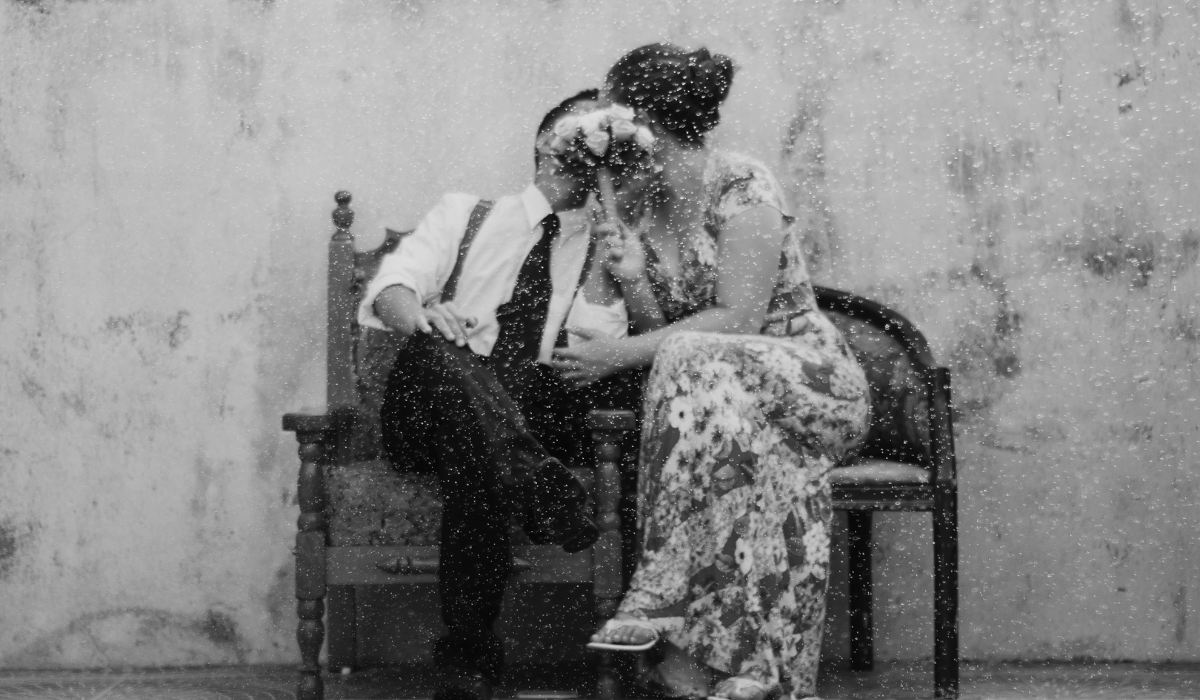
Love and Dating Across the Centuries
Have you ever wondered how dating began?

Lessons From 100 Years of Life
We all know the saying: With age comes wisdom.
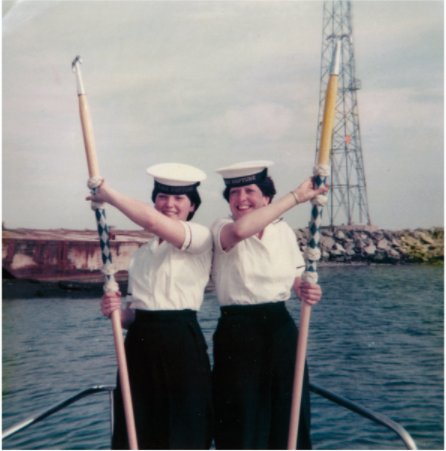
Meet Desiree Home: And Then, Positivity
Desiree Home has two simple yet powerful words for her catch...
Create a book with Story Terrace
Submit your details to learn more about our writers, how it works, and our pricing & packages
Free Timeline Template
Submit your details to receive our timeline template. Plus we'll send you more guides, templates and resources in the coming weeks!
Free Guide: 65 Memory Prompts
Submit your details to receive the 65 Memory prompts we use to start writing a life story. Plus we'll send you more guides, templates and resources in the coming weeks!
Writer Match
Check for a writer near you.
Enter a zip code to look for writers near you. We can arrange your interviews by phone, video call or in person.
Capturing Your Parents' Story with Story Terrace
- Terms & Conditions
- How it Works
+1 (323) 446-2870 [email protected] 113 N. San Vicente Blvd, Suite 200 Beverly Hills, CA 90211
© 2022 by StoryTerrace.
Subscribe to our newsletter to receive regular updates. You can unsubscribe at any time. Read our privacy policy .
Follow us on social media.
- Biography Guest Post
- Privacy Policy

- Home Improvement
- Entertainment
Questions To Ask Someone For A Biography

Biographies are a great way to learn more about someone and their life. Asking the right questions can help to draw out important details and anecdotes that can make an interesting story. When interviewing someone for a biography, it is important to ask open-ended questions that allow the person to give more detailed answers. It is also important to ask follow-up questions so as to get a better understanding of the person’s life and experiences. Examples of questions to ask someone for a biography include: What are some of the most memorable or meaningful experiences in your life?; What motivated you to pursue a certain career or path in life?; What are some of the biggest life lessons you have learned?; What advice would you give to someone who is just starting out in life?; What do you wish you had done differently in life?; What do you feel are the most important values you strive to live by?; What are some of the biggest successes you have achieved in life?; What do you consider to be your biggest accomplishment?
Background Questions
When writing a biography, it is important to ask the subject questions that will provide insight into their background, life experiences, and personality. Background questions can reveal the subject’s family structure, educational background, work history, and other important details. Knowing these details can provide a full picture of the subject and can determine the direction of the biography. Here are some questions to consider asking the subject when researching their background:
• What was your family like growing up?
• What did you enjoy most about school?
• What was your first job?
• How did you get into your current profession?
• What challenges have you faced in your life?
• Where have you lived?
• What is your favorite childhood memory?
• What hobbies or activities do you enjoy?
• What did you learn from your past relationships?
Asking these background questions can help you to develop a more comprehensive understanding of the subject and their life story. The answers to these questions can provide the context needed to create an engaging and accurate biography.
Family and Education Questions
When you are interviewing someone for a biography, it is important to ask questions that will provide insight into their family, education, and other personal aspects of their life. By asking the right questions, you can get a better understanding of the person you are writing about and craft a more accurate and informative biography.
When it comes to family questions, you can ask about the person’s parents, siblings, and other relatives. What are their names? What did their parents do for a living? Did they have a close relationship with their family? Who was their closest relative?
Questions about education are also important for biographies. What school did they attend? Did they go to college or university? What did they study? What were their grades like? Did they participate in any extracurricular activities?
These are just a few of the questions you can ask when interviewing someone for a biography. Asking the right questions will help you get the information you need to create a compelling and accurate biography. By doing your research and asking the right questions, you can craft a biography that will help readers better understand the person you are writing about.
Career History Questions
When it comes to writing a biography, it is important to ask questions that will give you a comprehensive picture of someone’s life, career, and accomplishments. A great way to get to the heart of someone’s story is to ask them about their career history. Here are a few questions to consider when asking someone about their career history.
What was your first job? What inspired you to pursue that job? What have been some of your favorite accomplishments in your career? What have been some of the biggest challenges you have faced? What did you learn from your career experiences? What have been some of the most rewarding aspects of your career? How has your career evolved over the years? What advice would you give to people considering a similar career path?
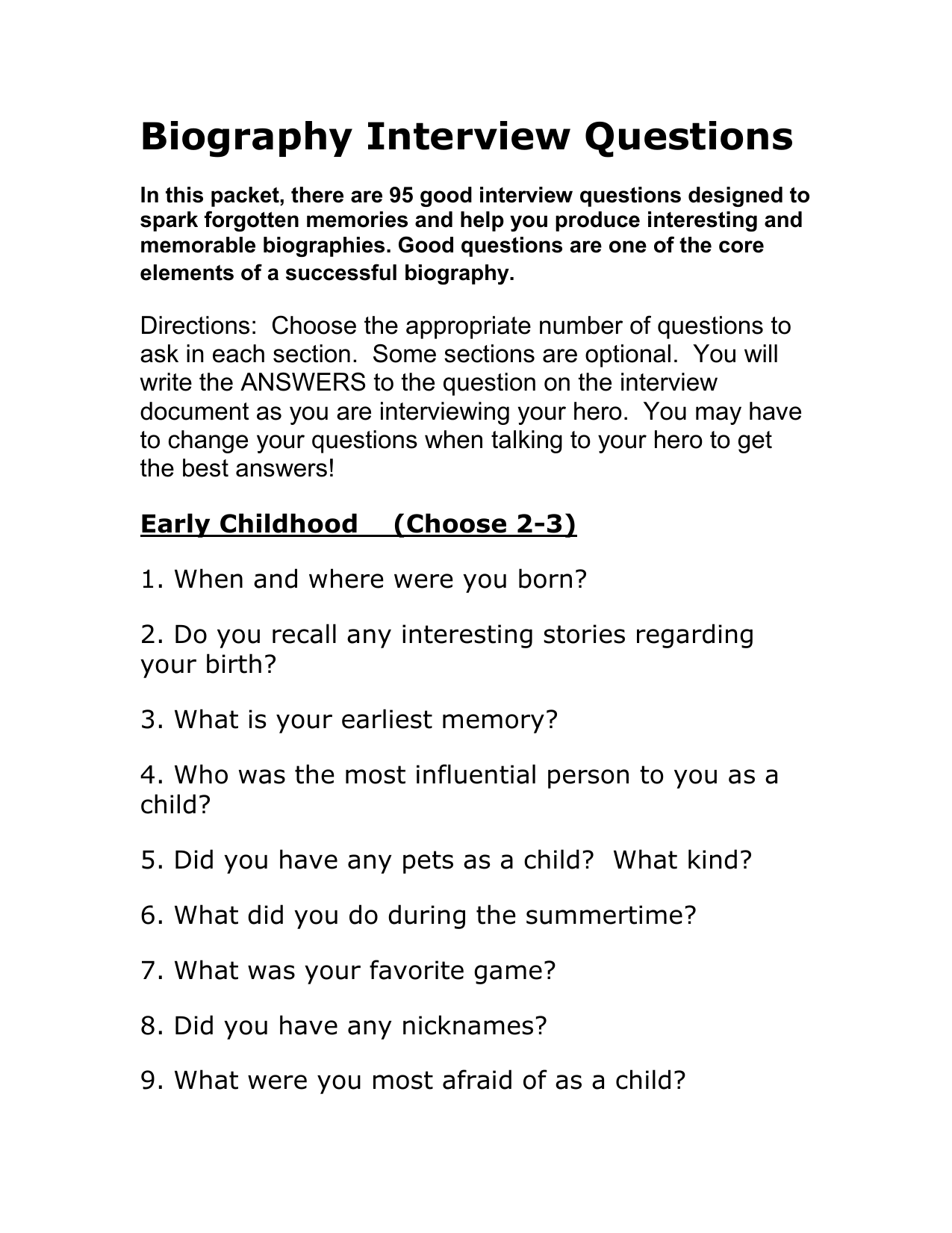
Interests and Hobbies Questions
Whether it’s a memoir of a family member, a celebrity, or even yourself, writing a biography can be immensely rewarding. To ensure you capture the true essence of their life story, it’s important to ask the right questions. When it comes to interests and hobbies, this can be particularly tricky. To ensure you get the answers you need, consider asking the following:
• What hobbies and activities do they enjoy?
• What is the story behind their favourite hobby?
• What did they enjoy doing as a child?
• What hobbies and activities do they find therapeutic?
• What new hobbies or activities have they recently tried out?
• What hobbies or activities do they feel passionate about?
• What is their favourite holiday destination?
• What do they like to do in their free time?
• What challenges have they faced in pursuing their hobbies and activities?
• What hobbies and activities do they find the most fulfilling?
By asking the right questions, you can get a comprehensive understanding of someone’s interests and hobbies. This will help you paint a clear picture of their character and provide valuable insights into their life and experiences. Taking the time to ask the right questions can make a huge difference when it comes to writing a captivating biography.
Life Experiences Questions
When writing a biography, it’s important to get to know the subject’s life experiences. To do this, you will need to ask questions about their past and present. Life experience questions can help you get a better insight into the subject’s memories, emotions, and relationships.
Some of the questions you could ask to get a better understanding of the person’s life experiences include: What was your family like growing up? What was your most meaningful experience in school? What is something you regret doing or not doing? What is the most difficult thing you have ever done? What has been the best moment in your life? What have been some of the most important lessons you have learned in life? What has been your greatest success? What has been your biggest challenge?
These questions can help you gain a deeper understanding of the person and their life experiences. Asking the right questions can help you to create an intriguing and comprehensive biography that captures the essence of the person’s life.
Reflection and Legacy Questions
Writing a biography is an important task that requires digging deep into a person’s life and emotions. To get a full sense of the individual, it’s essential to ask the right questions that will uncover meaningful insights and experiences. For this, reflection and legacy questions play a crucial role. These questions are designed to help us explore how a person thinks about their life, the impact they’ve made, and how they want to be remembered. Reflection and legacy questions can include: “What would you say are your most important accomplishments?”, “What do you think are the most meaningful lessons you’ve learned?”, “What has been the most difficult experience of your life?”, “How have you seen the world change during your lifetime?”, “What do you want to be remembered for?” Reflection and legacy questions are not only insightful for the biography, but they can also be a powerful way to spark meaningful conversations and help others gain a better understanding of who the person is and what their story is.

FAQs About the Questions To Ask Someone For A Biography
Q1. What events or experiences have had the most significant impact on your life?
Q2. What have been some of your biggest achievements?
Q3. What are your long-term goals and ambitions?
Asking questions to someone for a biography is an important step in understanding their life story. By asking questions that take into account both their past and present experiences, you can gain insight into their personality, values, and life goals. Questions can also cover topics such as their childhood, education, work, and hobbies. Taking the time to ask questions and get to know someone will provide you with a well-rounded story that you can use to write an engaging biography.
Related Posts
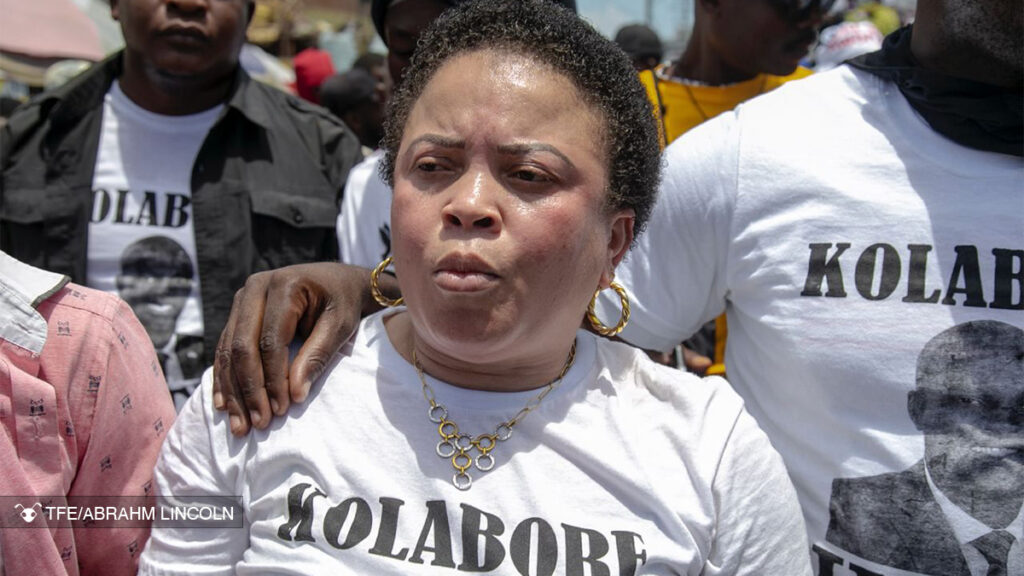
Magalie Habitant Biographie

Lucas Davenport Biography
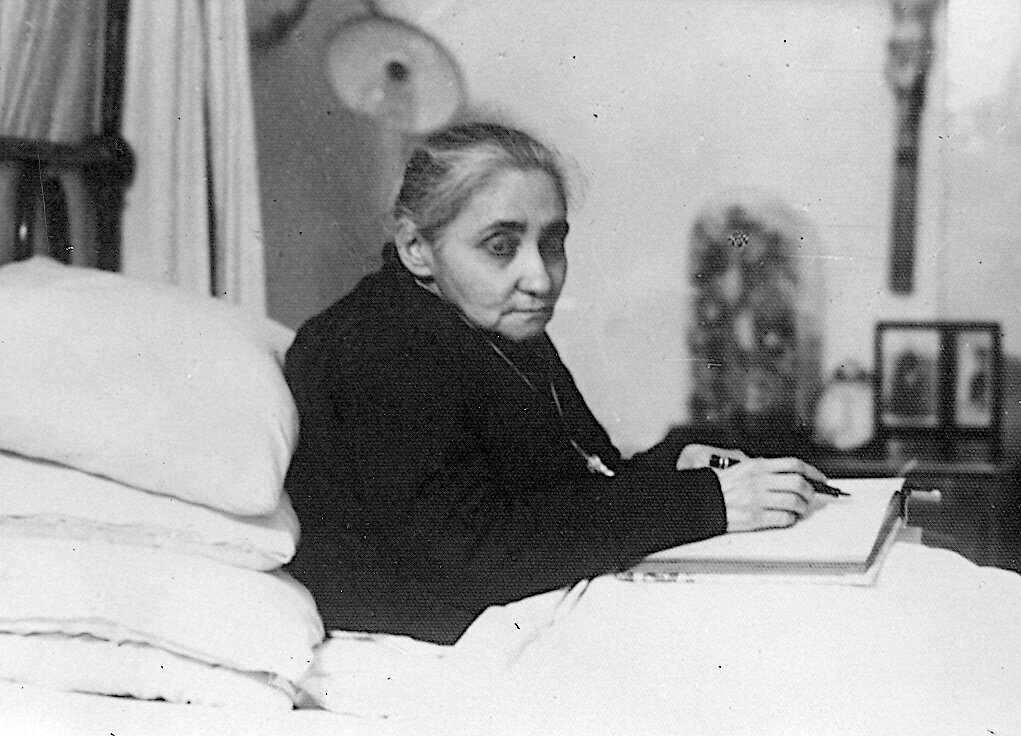
Luisa Piccarreta Biography
Leave a reply cancel reply.
Your email address will not be published. Required fields are marked *
Save my name, email, and website in this browser for the next time I comment.

How to Write a Biography
Biographies are big business. Whether in book form or Hollywood biopics, the lives of the famous and sometimes not-so-famous fascinate us.
While it’s true that most biographies are about people who are in the public eye, sometimes the subject is less well-known. Primarily, though, famous or not, the person who is written about has led an incredible life.
In this article, we will explain biography writing in detail for teachers and students so they can create their own.
While your students will most likely have a basic understanding of a biography, it’s worth taking a little time before they put pen to paper to tease out a crystal-clear definition of one.

What Is a Biography?

A biography is an account of someone’s life written by someone else . While there is a genre known as a fictional biography, for the most part, biographies are, by definition, nonfiction.
Generally speaking, biographies provide an account of the subject’s life from the earliest days of childhood to the present day or, if the subject is deceased, their death.
The job of a biography is more than just to outline the bare facts of a person’s life.
Rather than just listing the basic details of their upbringing, hobbies, education, work, relationships, and death, a well-written biography should also paint a picture of the subject’s personality and experience of life.
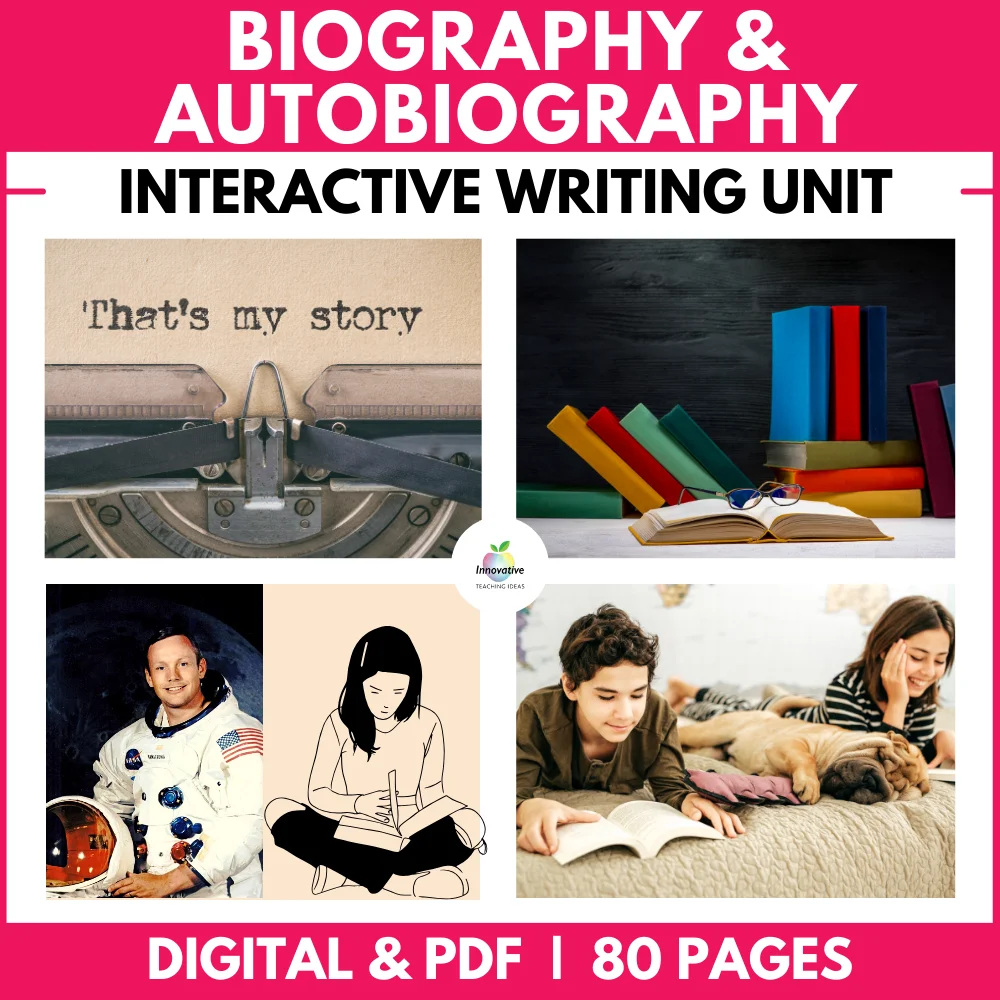
Full Biographies
Teaching unit.
Teach your students everything they need to know about writing an AUTOBIOGRAPHY and a BIOGRAPHY.
⭐⭐⭐⭐⭐ ( 26 reviews )
Features of a Biography
Before students begin writing a biography, they’ll need to have a firm grasp of the main features of a Biography. An excellent way to determine how well they understand these essential elements is to ask them to compile a checklist like the one-blow
Their checklists should contain the items below at a minimum. Be sure to help them fill in any gaps before moving on to the writing process.
The purpose of a biography is to provide an account of someone’s life.
Biography structure.
ORIENTATION (BEGINNING) Open your biography with a strong hook to grab the reader’s attention
SEQUENCING: In most cases, biographies are written in chronological order unless you are a very competent writer consciously trying to break from this trend.
COVER: childhood, upbringing, education, influences, accomplishments, relationships, etc. – everything that helps the reader to understand the person.
CONCLUSION: Wrap your biography up with some details about what the subject is doing now if they are still alive. If they have passed away, make mention of what impact they have made and what their legacy is or will be.
BIOGRAPHY FEATURES
LANGUAGE Use descriptive and figurative language that will paint images inside your audience’s minds as they read. Use time connectives to link events.
PERSPECTIVE Biographies are written from the third person’s perspective.
DETAILS: Give specific details about people, places, events, times, dates, etc. Reflect on how events shaped the subject. You might want to include some relevant photographs with captions. A timeline may also be of use depending upon your subject and what you are trying to convey to your audience.
TENSE Written in the past tense (though ending may shift to the present/future tense)
THE PROCESS OF WRITING A BIOGRAPHY
Like any form of writing, you will find it simple if you have a plan and follow it through. These steps will ensure you cover the essential bases of writing a biography essay.
Firstly, select a subject that inspires you. Someone whose life story resonates with you and whose contribution to society intrigues you. The next step is to conduct thorough research. Engage in extensive reading, explore various sources, watch documentaries, and glean all available information to provide a comprehensive account of the person’s life.
Creating an outline is essential to organize your thoughts and information. The outline should include the person’s early life, education, career, achievements, and any other significant events or contributions. It serves as a map for the writing process, ensuring that all vital information is included.
Your biography should have an engaging introduction that captivates the reader’s attention and provides background information on the person you’re writing about. It should include a thesis statement summarising the biography’s main points.
Writing a biography in chronological order is crucial . You should begin with the person’s early life and move through their career and achievements. This approach clarifies how the person’s life unfolded and how they accomplished their goals.
A biography should be written in a narrative style , capturing the essence of the person’s life through vivid descriptions, anecdotes, and quotes. Avoid dry, factual writing and focus on creating a compelling narrative that engages the reader.
Adding personal insights and opinions can enhance the biography’s overall impact, providing a unique perspective on the person’s achievements, legacy, and impact on society.
Editing and proofreading are vital elements of the writing process. Thoroughly reviewing your biography ensures that the writing is clear, concise, and error-free. You can even request feedback from someone else to ensure that it is engaging and well-written.
Finally, including a bibliography at the end of your biography is essential. It gives credit to the sources that were used during research, such as books, articles, interviews, and websites.
Tips for Writing a Brilliant Biography
Biography writing tip #1: choose your subject wisely.
There are several points for students to reflect on when deciding on a subject for their biography. Let’s take a look at the most essential points to consider when deciding on the subject for a biography:
Interest: To produce a biography will require sustained writing from the student. That’s why students must choose their subject well. After all, a biography is an account of someone’s entire life to date. Students must ensure they choose a subject that will sustain their interest throughout the research, writing, and editing processes.
Merit: Closely related to the previous point, students must consider whether the subject merits the reader’s interest. Aside from pure labors of love, writing should be undertaken with the reader in mind. While producing a biography demands sustained writing from the author, it also demands sustained reading from the reader.
Therefore, students should ask themselves if their chosen subject has had a life worthy of the reader’s interest and the time they’d need to invest in reading their biography.
Information: Is there enough information available on the subject to fuel the writing of an entire biography? While it might be a tempting idea to write about a great-great-grandfather’s experience in the war. There would be enough interest there to sustain the author’s and the reader’s interest, but do you have enough access to information about their early childhood to do the subject justice in the form of a biography?
Biography Writing Tip #2: R esearch ! Research! Research!
While the chances are good that the student already knows quite a bit about the subject they’ve chosen. Chances are 100% that they’ll still need to undertake considerable research to write their biography.
As with many types of writing , research is an essential part of the planning process that shouldn’t be overlooked. If students wish to give as complete an account of their subject’s life as possible, they’ll need to put in the time at the research stage.
An effective way to approach the research process is to:
1. Compile a chronological timeline of the central facts, dates, and events of the subject’s life
2. Compile detailed descriptions of the following personal traits:
- Physical looks
- Character traits
- Values and beliefs
3. Compile some research questions based on different topics to provide a focus for the research:
- Childhood : Where and when were they born? Who were their parents? Who were the other family members? What education did they receive?
- Obstacles: What challenges did they have to overcome? How did these challenges shape them as individuals?
- Legacy: What impact did this person have on the world and/or the people around them?
- Dialogue & Quotes: Dialogue and quotations by and about the subject are a great way to bring color and life to a biography. Students should keep an eagle eye out for the gems that hide amid their sources.
As the student gets deeper into their research, new questions will arise that can further fuel the research process and help to shape the direction the biography will ultimately go in.
Likewise, during the research, themes will often begin to suggest themselves. Exploring these themes is essential to bring depth to biography, but we’ll discuss this later in this article.
Research Skills:
Researching for biography writing is an excellent way for students to hone their research skills in general. Developing good research skills is essential for future academic success. Students will have opportunities to learn how to:
- Gather relevant information
- Evaluate different information sources
- Select suitable information
- Organize information into a text.
Students will have access to print and online information sources, and, in some cases, they may also have access to people who knew or know the subject (e.g. biography of a family member).
These days, much of the research will likely take place online. It’s crucial, therefore, to provide your students with guidance on how to use the internet safely and evaluate online sources for reliability. This is the era of ‘ fake news ’ and misinformation after all!
COMPLETE TEACHING UNIT ON INTERNET RESEARCH SKILLS USING GOOGLE SEARCH
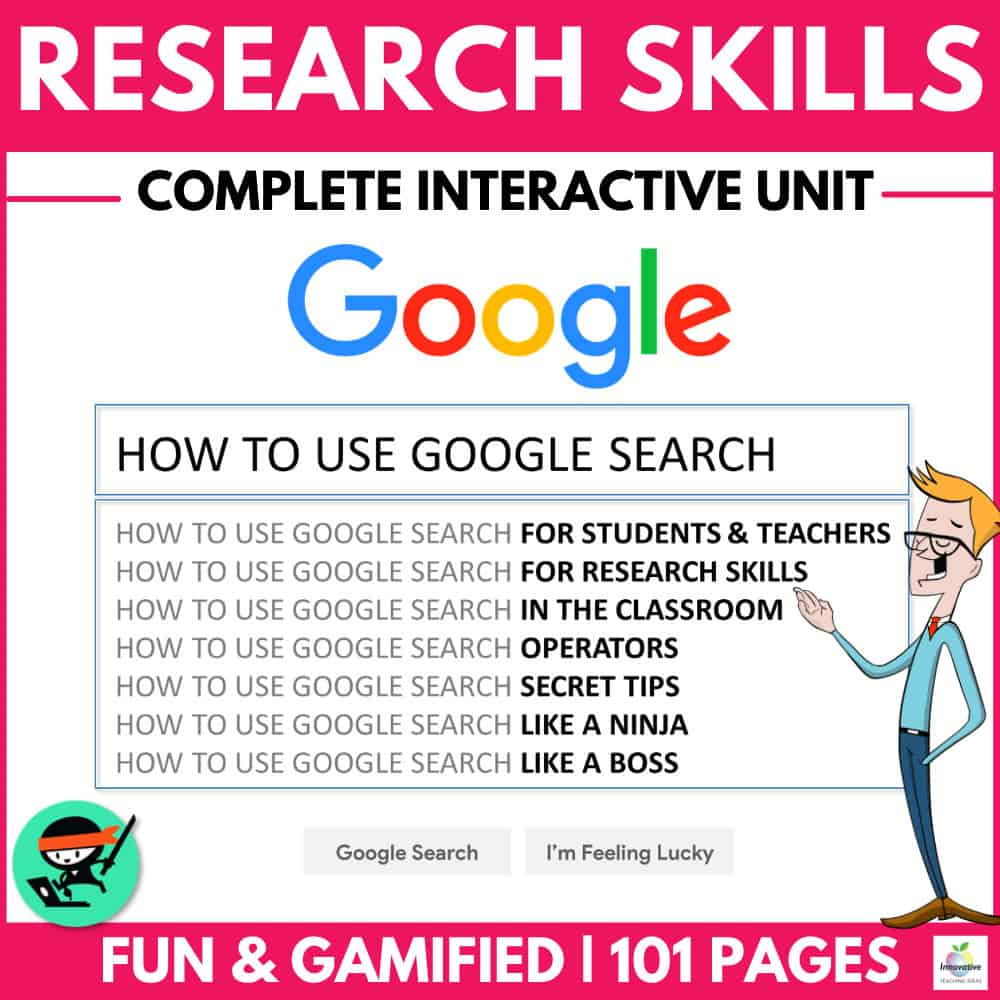
Teach your students ESSENTIAL SKILLS OF THE INFORMATION ERA to become expert DIGITAL RESEARCHERS.
⭐How to correctly ask questions to search engines on all devices.
⭐ How to filter and refine your results to find exactly what you want every time.
⭐ Essential Research and critical thinking skills for students.
⭐ Plagiarism, Citing and acknowledging other people’s work.
⭐ How to query, synthesize and record your findings logically.
BIOGRAPHY WRITING Tip #3: Find Your Themes In Biography Writing
Though predominantly a nonfiction genre, the story still plays a significant role in good biography writing. The skills of characterization and plot structuring are transferable here. And, just like in fiction, exploring themes in a biographical work helps connect the personal to the universal. Of course, these shouldn’t be forced; this will make the work seem contrived, and the reader may lose faith in the truthfulness of the account. A biographer needs to gain and maintain the trust of the reader.
Fortunately, themes shouldn’t need to be forced. A life well-lived is full of meaning, and the themes the student writer is looking for will emerge effortlessly from the actions and events of the subject’s life. It’s just a case of learning how to spot them.
One way to identify the themes in a life is to look for recurring events or situations in a person’s life. These should be apparent from the research completed previously. The students should seek to identify these patterns that emerge in the subject’s life. For example, perhaps they’ve had to overcome various obstacles throughout different periods of their life. In that case, the theme of overcoming adversity is present and has been identified.
Usually, a biography has several themes running throughout, so be sure your students work to identify more than one theme in their subject’s life.
BIOGRAPHY WRITING Tip: #4 Put Something of Yourself into the Writing
While the defining feature of a biography is that it gives an account of a person’s life, students must understand that this is not all a biography does. Relating the facts and details of a subject’s life is not enough. The student biographer should not be afraid to share their thoughts and feelings with the reader throughout their account of their subject’s life.
The student can weave some of their personality into the fabric of the text by providing commentary and opinion as they relate the events of the person’s life and the wider social context at the time. Unlike the detached and objective approach we’d expect to find in a history textbook, in a biography, student-writers should communicate their enthusiasm for their subject in their writing.
This makes for a more intimate experience for the reader, as they get a sense of getting to know the author and the subject they are writing about.
Biography Examples For Students
- Year 5 Example
- Year 7 Example
- Year 9 Example
“The Rock ‘n’ Roll King: Elvis Presley”
Elvis Aaron Presley, born on January 8, 1935, was an amazing singer and actor known as the “King of Rock ‘n’ Roll.” Even though he’s been dead for nearly 50 years, I can’t help but be fascinated by his incredible life!
Elvis grew up in Tupelo, Mississippi, in a tiny house with his parents and twin brother. His family didn’t have much money, but they shared a love for music. Little did they know Elvis would become a music legend!
When he was only 11 years old, Elvis got his first guitar. He taught himself to play and loved singing gospel songs. As he got older, he started combining different music styles like country, blues, and gospel to create a whole new sound – that’s Rock ‘n’ Roll!
In 1954, at the age of 19, Elvis recorded his first song, “That’s All Right.” People couldn’t believe how unique and exciting his music was. His famous hip-swinging dance moves also made him a sensation!
Elvis didn’t just rock the music scene; he also starred in movies like “Love Me Tender” and “Jailhouse Rock.” But fame came with challenges. Despite facing ups and downs, Elvis kept spreading happiness through his music.

Tragically, Elvis passed away in 1977, but his music and charisma live on. Even today, people worldwide still enjoy his songs like “Hound Dog” and “Can’t Help Falling in Love.” Elvis Presley’s legacy as the King of Rock ‘n’ Roll will live forever.
Long Live the King: I wish I’d seen him.
Elvis Presley, the Rock ‘n’ Roll legend born on January 8, 1935, is a captivating figure that even a modern-day teen like me can’t help but admire. As I delve into his life, I wish I could have experienced the magic of his live performances.
Growing up in Tupelo, Mississippi, Elvis faced challenges but found solace in music. At 11, he got his first guitar, a symbol of his journey into the world of sound. His fusion of gospel, country, and blues into Rock ‘n’ Roll became a cultural phenomenon.
The thought of being in the audience during his early performances, especially when he recorded “That’s All Right” at 19, sends shivers down my spine. Imagining the crowd’s uproar and feeling the revolutionary energy of that moment is a dream I wish I could have lived.
Elvis wasn’t just a musical prodigy; he was a dynamic performer. His dance moves, the embodiment of rebellion, and his roles in films like “Love Me Tender” and “Jailhouse Rock” made him a true icon.
After watching him on YouTube, I can’t help but feel a little sad that I’ll never witness the King’s live performances. The idea of swaying to “Hound Dog” or being enchanted by “Can’t Help Falling in Love” in person is a missed opportunity. Elvis may have left us in 1977, but he was the king of rock n’ roll. Long live the King!
Elvis Presley: A Teen’s Take on the Rock ‘n’ Roll Icon”
Elvis Presley, born January 8, 1935, was a revolutionary force in the music world, earning his title as the “King of Rock ‘n’ Roll.” Exploring his life, even as a 16-year-old today, I’m captivated by the impact he made.
Hailing from Tupelo, Mississippi, Elvis grew up in humble beginnings, surrounded by the love of his parents and twin brother. It’s inspiring to think that, despite financial challenges, this young man would redefine the music scene.
At 11, Elvis got his first guitar, sparking a self-taught journey into music. His early gospel influences evolved into a unique fusion of country, blues, and gospel, creating the electrifying genre of Rock ‘n’ Roll. In 1954, at only 19, he recorded “That’s All Right,” marking the birth of a musical legend.
Elvis wasn’t just a musical innovator; he was a cultural phenomenon. His rebellious dance moves and magnetic stage presence challenged the norms. He transitioned seamlessly into acting, starring in iconic films like “Love Me Tender” and “Jailhouse Rock.”
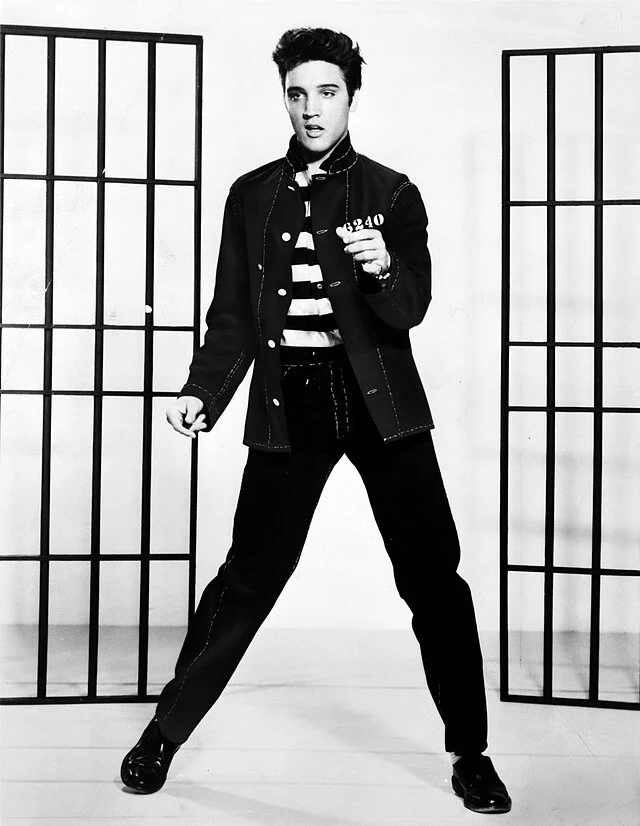
However, fame came at a cost, and Elvis faced personal struggles. Despite the challenges, his music continued to resonate. Even now, classics like “Hound Dog” and “Can’t Help Falling in Love” transcend generations.
Elvis Presley’s impact on music and culture is undeniable. He was known for his unique voice, charismatic persona, and electrifying performances. He sold over one billion records worldwide, making him one of the best-selling solo artists in history. He received numerous awards throughout his career, including three Grammy Awards and the Grammy Lifetime Achievement Award.
Elvis’s influence can still be seen in today’s music. Many contemporary artists, such as Bruno Mars, Lady Gaga, and Justin Timberlake, have cited Elvis as an inspiration. His music continues to be featured in movies, TV shows, and commercials.
Elvis left us in 1977, but his legacy lives on. I appreciate his breaking barriers and fearlessly embracing his artistic vision. Elvis Presley’s impact on music and culture is timeless, a testament to the enduring power of his artistry. His music has inspired generations and will continue to do so for many years to come.

Teaching Resources
Use our resources and tools to improve your student’s writing skills through proven teaching strategies.
BIOGRAPHY WRITING TEACHING IDEAS AND LESSONS
We have compiled a sequence of biography-related lessons or teaching ideas that you can follow as you please. They are straightforward enough for most students to follow without further instruction.
BIOGRAPHY LESSON IDEA # 1:
This session aims to give students a broader understanding of what makes a good biography.
Once your students have compiled a comprehensive checklist of the main features of a biography, allow them to use it to assess some biographies from your school library or on the internet using the feature checklist.
When students have assessed a selection of biographies, take some time as a class to discuss them. You can base the discussion around the following prompts:
- Which biographies covered all the criteria from their checklist?
- Which biographies didn’t?
- Which biography was the most readable in terms of structure?
- Which biography do you think was the least well-structured? How would you improve this?
Looking at how other writers have interpreted the form will help students internalize the necessary criteria before attempting to produce a biography. Once students have a clear understanding of the main features of the biography, they’re ready to begin work on writing a biography.
When the time does come to put pen to paper, be sure they’re armed with the following top tips to help ensure they’re as well prepared as possible.
BIOGRAPHY LESSON IDEA # 2:
This session aims to guide students through the process of selecting the perfect biography subject.
Instruct students to draw up a shortlist of three potential subjects for the biography they’ll write.
Using the three criteria mentioned in the writing guide (Interest, Merit, and Information), students award each potential subject a mark out of 5 for each of the criteria. In this manner, students can select the most suitable subject for their biography.
BIOGRAPHY LESSON IDEA # 3:
This session aims to get students into the researching phase, then prioritise and organise events chronologically.
Students begin by making a timeline of their subject’s life, starting with their birth and ending with their death or the present day. If the student has yet to make a final decision on the subject of their biography, a family member will often serve well for this exercise as a practice exercise.
Students should research and gather the key events of the person’s life, covering each period of their life from when they were a baby, through childhood and adolescence, right up to adulthood and old age. They should then organize these onto a timeline. Students can include photographs with captions if they have them.
They can present these to the class when they have finished their timelines.
BIOGRAPHY LESSON IDEA # 4:
Instruct students to look over their timeline, notes, and other research. Challenge them to identify three patterns that repeat throughout the subject’s life and sort all the related events and incidents into specific categories.
Students should then label each category with a single word. This is the thematic concept or the broad general underlying idea. After that, students should write a sentence or two expressing what the subject’s life ‘says’ about that concept.
This is known as the thematic statement . With the thematic concepts and thematic statements identified, the student now has some substantial ideas to explore that will help bring more profound meaning and wider resonance to their biography.
BIOGRAPHY LESSON IDEA # 5:
Instruct students to write a short objective account of an event in their own life. They can write about anyone from their past. It needn’t be more than a couple of paragraphs, but the writing should be strictly factual, focusing only on the objective details of what happened.
Once they have completed this, it’s time to rewrite the paragraph, but they should include some opinion and personal commentary this time.
The student here aims to inject some color and personality into their writing, to transform a detached, factual account into a warm, engaging story.
A COMPLETE UNIT ON TEACHING BIOGRAPHIES
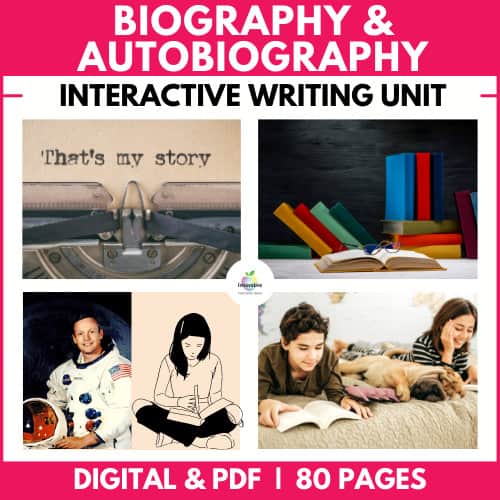
Teach your students to write AMAZING BIOGRAPHIES & AUTOBIOGRAPHIES using proven RESEARCH SKILLS and WRITING STRATEGIES .
- Understand the purpose of both forms of biography.
- Explore the language and perspective of both.
- Prompts and Challenges to engage students in writing a biography.
- Dedicated lessons for both forms of biography.
- Biographical Projects can expand students’ understanding of reading and writing a biography.
- A COMPLETE 82-PAGE UNIT – NO PREPARATION REQUIRED.
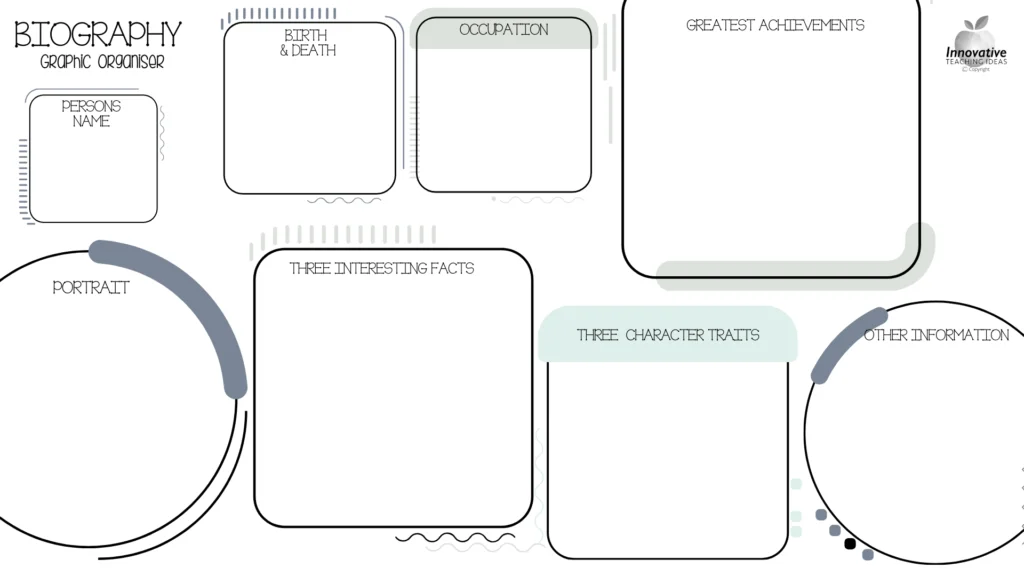
FREE Biography Writing Graphic Organizer
Use this valuable tool in the research and writing phases to keep your students on track and engaged.
WRITING CHECKLIST & RUBRIC BUNDLE

⭐⭐⭐⭐⭐ (92 Reviews)
To Conclude
By this stage, your students should have an excellent technical overview of a biography’s essential elements.
They should be able to choose their subject in light of how interesting and worthy they are, as well as give consideration to the availability of information out there. They should be able to research effectively and identify emerging themes in their research notes. And finally, they should be able to bring some of their personality and uniqueness into their retelling of the life of another.
Remember that writing a biography is not only a great way to develop a student’s writing skills; it can be used in almost all curriculum areas. For example, to find out more about a historical figure in History, to investigate scientific contributions to Science, or to celebrate a hero from everyday life.
Biography is an excellent genre for students to develop their writing skills and to find inspiration in the lives of others in the world around them.
HOW TO WRITE A BIOGRAPHY TUTORIAL VIDEO

OTHER GREAT ARTICLES RELATED TO BIOGRAPHY WRITING

How to write an Autobiography
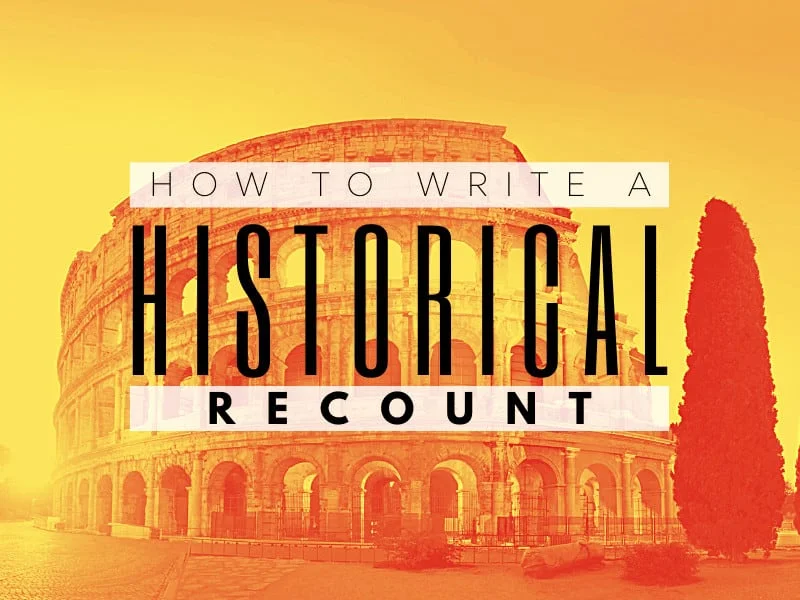
How to Write a Historical Recount Text
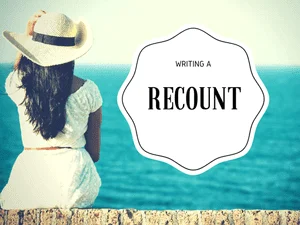
15 Awesome Recount & Personal Narrative Topics
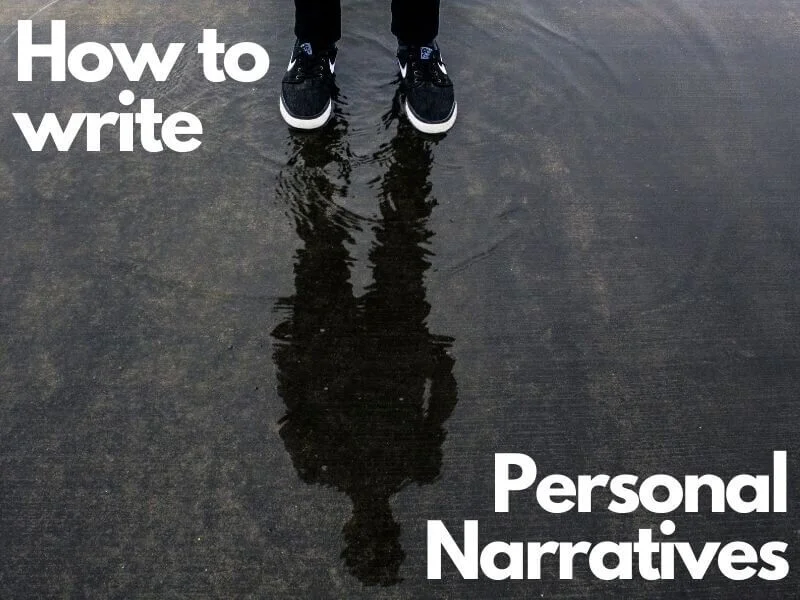
Personal Narrative Writing Guide
How to Write an Interesting Biography
- Homework Tips
- Learning Styles & Skills
- Study Methods
- Time Management
- Private School
- College Admissions
- College Life
- Graduate School
- Business School
- Distance Learning
- M.Ed., Education Administration, University of Georgia
- B.A., History, Armstrong State University
A biography is a written account of the series of events that make up a person's life. Some of those events are going to be pretty boring, so you'll need to try to make your account as interesting as possible!
Every student will write a biography at some point, but the level of detail and sophistication will differ. A fourth grade biography will be much different from a middle school-level biography or a high school or college-level biography.
However, each biography will include the basic details. The first information you should gather in your research will include biographical details and facts. You must use a trustworthy resource to ensure that your information is accurate.
Using research note cards , collect the following data, carefully recording the source for each piece of information:
Including Basic Details
- Date and place of birth and death
- Family information
- Lifetime accomplishments
- Major events of life
- Effects/impact on society, historical significance
While this information is necessary to your project, these dry facts, on their own, don't really make a very good biography. Once you've found these basics, you'll want to dig a little deeper.
You choose a certain person because you think he or she is interesting, so you certainly don't want to burden your paper with an inventory of boring facts. Your goal is to impress your reader!
Start off with great first sentence . It's a good idea to begin with a really interesting statement, a little-known fact, or really intriguing event.
You should avoid starting out with a standard but boring line like:
"Meriwether Lewis was born in Virginia in 1774."
Instead, try starting with something like this:
"Late one afternoon in October, 1809, Meriwether Lewis arrived at a small log cabin nestled deep in the Tennessee Mountains. By sunrise on the following day, he was dead, having suffered gunshot wounds to the head and chest.
You'll have to make sure your beginning is motivating, but it should also be relevant. The next sentence or two should lead into your thesis statement , or main message of your biography.
"It was a tragic end to a life that had so deeply affected the course of history in the United States. Meriwether Lewis, a driven and often tormented soul, led an expedition of discovery that expanded a young nation's economic potential, increased its scientific understanding, and enhanced its worldwide reputation."
Now that you've created an impressive beginning , you'll want to continue the flow. Find more intriguing details about the man and his work, and weave them into the composition.
Examples of Interesting Details:
- Some people believed that Lewis and Clark would encounter elephants in the western wilderness, having misunderstood the wooly mammoth bones discovered in the United States.
- The expedition resulted in the discovery and description of 122 new animal species and subspecies.
- Lewis was a hypochondriac.
- His death is still an unsolved mystery, although it was ruled a suicide.
You can find interesting facts by consulting diverse sources.
Fill the body of your biography with material that gives insight into your subject's personality. For instance, in a biography about Meriwether Lewis, you would ask what traits or events motivated him to embark on such a monumental exercise.
Questions to Consider in Your Biography:
- Was there something in your subject's childhood that shaped his/her personality?
- Was there a personality trait that drove him/her to succeed or impeded his progress?
- What adjectives would you use to describe him/her?
- What were some turning points in this life?
- What was his/her impact on history?
Be sure to use transitional phrases and words to link your paragraphs and make your composition paragraphs flow . It is normal for good writers to re-arrange their sentences to create a better paper.
The final paragraph will summarize your main points and re-assert your main claim about your subject. It should point out your main points, re-name the person you're writing about, but it should not repeat specific examples.
As always, proofread your paper and check for errors. Create a bibliography and title page according to your teacher's instructions. Consult a style guide for proper documentation.
- 10 Steps to Writing a Successful Book Report
- How to Write a Good Thesis Statement
- How to Write a Personal Narrative
- The Introductory Paragraph: Start Your Paper Off Right
- How to Write a Solid Thesis Statement
- How to Help Your 4th Grader Write a Biography
- Tips for Writing an Art History Paper
- How to Write a Great Book Report
- How to Write a Film Review
- How to Write a Research Paper That Earns an A
- The Ultimate Guide to the 5-Paragraph Essay
- Overused and Tired Words
- Writing a Descriptive Essay
- How to Write a Great Essay for the TOEFL or TOEIC
- Structure of a Descriptive Essay
- How to Write a Narrative Essay or Speech
Writer | Biography | Creative Nonfiction
How to ask questions in a biographical interview
When it comes to questions, there’s a lot to cover. first, let’s look at how to ask questions, then in the next article, we’ll look at what types of questions you can ask..

Make it like conversation
In the spirit of keeping everyone comfortable, historian Studs Terkel said a successful interview should be like “engaging in conversation, having a cup of coffee” (cited by Ritchie). Terry, an interviewee of Terkel said that Terkel “doesn’t ask particularly probing questions, and yet he’s able to get people to open up and tell these marvellous little stories about themselves. He’s a good listener” (cited by Ritchie).
In an interview with Literary Hub, Nobel Laureate and oral historian Svetlana Alexievich said, “I never call what I do ‘interviews’. We speak to each other as neighbours, in a new genre that is required by our time. It is a history of human feelings”.
As you would in a regular conversation, keep tabs on your interviewee’s interest and their comfort. Ascough, Curthoys and McGarth say to note their energy levels and to watch if fatigue is starting to set in, however, as discussed in “Before the interview” the length of the interview should ideally be defined before it even begins.
Start with enjoyable topics
Talmage reminds us to remember that what you say first will affect the rest of the interview. Ritchie suggests starting with easy questions that are not “too abrupt and confrontational; instead, build up to the climactic questions by establishing the historical setting and making the interviewee more comfortable with the process”.
One way of doing this is starting with a discussion of topics the interviewee enjoys talking about before moving onto harder questions. Donald Ritchie shared an example of when this wasn’t possible: one interviewer was going to interview Edward Teller, a nuclear physicist – Teller arrived late and they had limited time – the interviewer skipped the easier, non confrontational questions and asked about the most controversial part. Teller responded by saying, “This interview is over” and left.
Consider leaving the difficult or critical questions until the middle or end of the interview, as they may need a break after these questions, or, Miller notes that they might choose to end the interview at or after this point. DeLouise & Harrington suggest that if you are interviewing someone who is sick or elderly, consider asking the critical questions first.
Handling short answers and sensitive topics
If you find that your interviewee is providing short answers, not answering in enough detail or being deliberately evasive, Ritchie suggests that this could be happening because the interviewer “is asking too many specific questions and not enough open-ended ‘how’ and ‘why’ questions” and also sometimes “interviewees are not always sure of how much detail interviewers want” or perhaps the interviewer has moved on to the next questions too quickly.
It could also be because the person is not particularly interested in the questions being asked, in which case it may be best to move onto another topic, or even consider ending the interview. If responses are short or evasive, Rollyson suggests the interviewee might perceive the topic to be controversial. People don’t always want to talk about difficult things, Ritchie notes that “interviewers must be prepared to ask questions about painful and embarrassing subjects – although they must also respect people’s right not to answer such questions, if they so choose”.
A trick Ritchie uses to ask difficult questions is to “quote someone else”, for example, “The Washington Post reported that you left office because of such and such. Was this a fair assessment?”. If the interviewee is defensive, come back to the topic later, even at a different interview session. In Doing Oral History, Adams is cited “When bringing up sensitive subjects, however, be careful not to appear embarrassed yourself. Interviewees will sense this, and it will make them uncomfortable, affecting their responses”.
Keep it simple
As well as starting with easier questions, keep the conversation simple by asking only one question at a time: avoid double-barrelled questions. Asking more than one question at a time may result in the interviewee choosing to only answer one part, either intentionally or simply because they forgot and if they forget, it means you’ll need to ask the question again anyway. Hamilton notes that asking many questions at once can result in the interviewee feeling overwhelmed, they may take offence or feel manipulated.
Next, let’s look at types of questions to ask in a biographical interview.
Written by Melody Dexter
Further reading >
Autobiography Questions & Prompts for Students

Writing about one’s own life can be inspiring and terrifying at the same time. No matter why you must prepare an autobiography, it allows you to get to know yourself better and become more open.
A student autobiography is one of the most commonly met types of autobiographical writing. You might need to write one when applying to a college or university. In an essay about yourself, you must catch your readers’ attention, leaving an impression of an outstanding learner and person. You’re in the right place if you are stuck preparing a student autobiography. This article will guide you through the writing process, offering autobiography questions for students together with valuable prompts.
- 70 Autobiography Questions
- 5 Exciting Prompts
70 Autobiography Questions for Students
The first thing you should remember when writing an autobiography is that all types of clichés can kill your paper. The standard scheme “was born – went to school – went to college” won’t impress anyone. However, the following autobiography quiz, which contains the most common questions, can be an effective start for brainstorming the subject.
- When and where were you born?
- Who are your family members?
- What are the most impressive of your childhood memories?
- Were there any family traditions that influenced you?
- Who were your best childhood friends?
- What was the most exciting experience of your early childhood?
- Were there any challenging experiences?
- How did your first day of school go?
- What school subject did you like most, and why?
- Can you recall a memorable teacher who influenced you?
- What was your favorite book as a child?
- Did you have a hobby as a child?
- Are there any childhood interests or hobbies that still excite you?
- Did art or music play a role in your life?
- What were your dearest childhood dreams?
- How did your dreams change when you’ve grown older?
- Do you remember a moment in your childhood when you were very proud of yourself?
- What were your most memorable trips?
- What was your most adventurous experience?
- What’s the most exotic dish you’ve tried?
- How has travel shaped your personality?
- Were there any difficult moments in life you had to overcome?
- How did you find the strength and courage to overcome them?
- What was the most spectacular failure in your life?
- What valuable lessons did you learn from your failures?
- How did your values change over the years?
- Which of your experiences influenced your personal growth most?
- Do you have any famous people you admire?
- Is there anyone among your loved ones who is a role model for you?
- Do you remember falling in love for the first time?
- Have you experienced any heartbreaks?
- How do you define love?
- Are love and relationships important in your life?
- Have you faced any relationship challenges?
- What have you learned from the relationship hardships you had?
- Have you already chosen a career path?
- Would you like to develop in one career direction all your life or change professions?
- What are your professional aspirations and goals?
- Do you have any work experience and achievements?
- How would you describe yourself?
- Do you feel that your identity has changed throughout your life?
- Is your cultural identity important to you?
- What does it mean to be true to yourself?
- Are there any milestones in your life, like awards or personal achievements?
- How did you celebrate these achievements?
- Are there any achievements that changed your aspirations and perspective?
- Do you have any experience of volunteering?
- Has your experience of giving back to your community changed your life?
- How do you imagine your life in 10, 20, 30 years?
- Is there any contribution you would like to make?
- How would you like your loved ones to remember you?
- Do you have a life motto?
- Do you have a favorite movie character?
- Who is your least favorite movie character, and why?
- How do you define success?
- What is happiness for you?
- Do you have any healthy habits or practices?
- Have you ever faced any health challenges?
- Have these challenges influenced your personality?
- Is the environment important to you?
- How do you address environmental issues that bother you?
- Do you have any experiences related to environmental activism?
- What makes you happy?
- What was the happiest moment of your life?
- Is there something you regret about?
- What did you learn from the moments you regret about?
- Were there any turning points that led your life in a new direction?
- How did you feel during these moments?
- Is it essential for you to live a meaningful life?
- How would you define the meaning of life?
5 Exciting Student Autobiography Prompts
The questions discussed above focus on the most common ingredients, which can become good building blocks for your autobiography. However, you should add some spice to your life story to prevent your readers from falling asleep.
To do this, here are 5 exclusive prompts to find topics for an autobiography that will breathe life into your memoir, making it uniquely interesting. If you’re still in a lack of ideas after reading them, check the collection of free essays on any topic imaginable.
Here are the prompts:
- Has the world changed during your life, and how do you feel about these changes? Reflect on the transformations you’ve witnessed, such as the technological advancements , the emergence of the Internet, and social networking platforms. How have these changes impacted your life, your habits, and your worldview? Share your thoughts on the topic.
- What is your contribution to the future of this planet, and how did you choose it? Consider the various ways to make a positive impact on the environment. You can focus on simple actions that everyone can perform, like reducing the use of plastic bags. Explain what motivated you to make these decisions.
- What would you tell your dear ones if you knew that you had only one day more to live on earth? What heartfelt messages would you share with your family, friends, neighbors, and all the people in the world? Use this scenario to dig deep into your values and beliefs.
- What occupation would you choose if you did not have to earn your living? Explore your passions, interests, and dreams. Imagine the ideal career path or artistic pursuit that truly resonates with your inner self.
- If you could exclaim, “ Stay moment, you are so fair! ”, would you do it? Did this special moment pass away, or do you believe it is yet to come in your future? Explain what makes these moments special and how they have shaped your life or continue to influence your journey.
Thank you for reading this article! If you wish to polish separate sections of your assignment, you are welcome to use the writing tools we’ve developed:
- Thesis statement maker
- Summary tool
- Paragraph & word changer
- Autobiography Definition, Examples, and Writing Guide
- 5 Ways to Write an Autobiography
- How to Write a Memoir
- The naked truth: how to write a memoir | Books
Related Posts
Eragon movie essay writing: some themes for students to develop.

Computer Science Dissertations: Great Topics for Discussion
Certificate in education essays: some tips for students, theology dissertation: time to choose a good dissertation topic, ideas for dissertations on film.
- Starting a Business
- Growing a Business
- Small Business Guide
- Business News
- Science & Technology
- Money & Finance
- For Subscribers
- Write for Entrepreneur
- Entrepreneur Store
- United States
- Asia Pacific
- Middle East
- South Africa
Copyright © 2024 Entrepreneur Media, LLC All rights reserved. Entrepreneur® and its related marks are registered trademarks of Entrepreneur Media LLC
I've Been Offered Every Job I've Interviewed For. Here Are 5 Questions I Ask Interviewers. Career consultant Kendal Lindstrom says these five questions are the winning formula for landing the role.
By Tim Paradis • May 9, 2024
Key Takeaways
- Kendal Lindstrom started a career-change consultancy after struggling to change jobs.
- She shared her strategy for acing job interviews, which includes having five key questions ready.
- They focus on areas such as company culture, team dynamics, and the employer's long-term plans.
This article originally appeared on Business Insider .
This as-told-to essay is based on a conversation with Kendal Lindstrom, 25, who lives in Scottsdale, Arizona. She runs a career-change consulting firm named Doux and works in tech. She recently posted a TikTok about five questions she has ready for a job interview. Lindstrom says she believes asking at least some of these questions is why she's always landed a role she interviewed for. The following has been edited for brevity and clarity.
I started Doux because I never liked to be put in a box in terms of my career. Coming out of college, I thought, "I just want to be known as the girl in fashion." I was so wrong. But I didn't know how to pivot into a new industry . It took me two years of connecting, trying, and failing. I found the framework of what Doux is now by failing.
After working in fashion, I got myself into medical sales. I then switched to tech because that's where my passions lie. It took me two years to go from fashion to medical sales. But from the day I decided I wanted to be a tech consultant, it only took me three weeks to get my offer letter.
The difference was I knew how to write my résumé. I knew how to become the candidate that they needed.
My formula is to map your résumé to the career you're going to, not the career you've been in. To get to my current job, I created a résumé that was unstoppable.
Usually, I tell my clients to reach out to the hiring manager. In this case, the hiring manager got to me within minutes of me submitting my résumé. The interview process was extensive, but, like I always tell my clients, it's about follow-ups.
I followed up three times because they had great candidates. But I needed to stay in front, and I needed to be the person they chose.
I had the drive
It's funny when I look back and talk to the executives who hired me. They're like: "You had no business being in tech. You had nothing on your résumé that told us that you would do a good job in this. But the way you presented yourself, it was a no-brainer to hire you because we knew you would get it." So, it's often more how you're presenting yourself in a professional realm rather than what you're saying to answer the questions.
I had drive, and that's what they were looking for. They were looking for someone young to grow with the company. If they wanted someone young, they weren't going to get all the experience in the software that they needed. But I was eager to learn, and however many hours outside work that took, I was willing to do it. I really drove home that it doesn't stop at 5 p.m. My job stops when my job is done.
Each day after work, I spent 30 minutes reading a training book my company had given me. Then, I tried to apply the knowledge for 30 minutes. The next day, I would get time on my boss's calendar and say: "This is what I learned yesterday. Tell me how you have seen this applied in scenarios with a client."
It took me about a year to really digest everything. It was tough, but it came down to whether I was willing to ask questions when I needed help rather than having too much pride and not asking anyone.
I've done a lot of interviews for my age because I kept my options open no matter where I was in my career. I've never wanted to be stagnant. So I have done upwards of 10 or 11 interviews, and I've never been told no because my goal was to make an employer feel like I had their best interests at heart and I wanted to be part of their company, which meant I needed to sell myself as a solution. And it's more about the questions you ask than the answers you get.
I have pretty thick skin
When I worked in medical sales — or even with some of the comments on my TikTok — so much was about my image. I was like, "What does my blonde hair have to do with the knowledge that I have?" Not that it ever hurt my feelings because I have pretty thick skin. In any industry, there will be people who would want to discredit someone's abilities because of how they look. But at the end of the day, I can use my brain to where people are like, "We need to listen to you."
@kendallindstrom it's more about the questions you ask than the answers you get. people want to talk about themselves. #interviewquestions #jobinterview #resume #careerchange #womeninbusines ♬ original sound - DOUX | CAREER CHANGE MGMT
Some of the comments on my TikTok have been so far off the mark. At the time of my interviews for my current job, I didn't have a website, and my social media wasn't publicly available. So, I got the job because of the things I said and the questions I asked, and not because of my appearance.
These are my five key questions:
What's the company culture like?
The first thing I tell people to ask is about company culture. That's a big one. It's such a make-it-or-break-it for enjoying your job. I wanted my audience to know that asking about it is so important because if you're miserable in your job, you're only setting yourself up to fail.
What's the lowdown on my predecessor?
The second one is, "What did the person who held this role before me do that was appreciated but not required based on the job description?" I suggest this one because I want my audience to put themselves in the role already. It's an assumptive selling tactic. I always say go into the interview and sell yourself.
I asked that question one time — "What are you going to miss most about this person?" — and the interviewer said, "Oh, they got Starbucks all the time." And I was like, "Great, I guess we'll be getting Starbucks for the office all the time."
What do my colleagues require?
The third question was, "How can I best suit the needs of my direct counterparts?" That came from wanting to understand — in the most professional way — the team you're walking into. It helps me understand and identify how I would fit into the team.
I've seen teams before where they just don't get along. But you don't know that until you sit down on the first day. And at that point, it's already too late. You're either leaving, or you've got to deal with this until you can figure out another job.
How successful is the team?
No. 4 is what the current state of the department is in reference to the bottom line. That has to do with asking about sales, of course, but I'm also asking: "Am I walking into a failing department? Are you expecting me to turn things around? Are you expecting me to just take the blame for something that's already failing? Or are you guys seeing numbers you've never seen before and need more people?" And, if so, "What did you do to see those numbers?"
What does the company's future look like?
My fifth question is my favorite. It's, "What's the company's three-year, five-year, and 10-year plan?" I love this one because I've never walked into a job and thought, "I'm only going to be here for one year," or "I'm only doing this to collect a paycheck." I always say, "Think like the CEO." I never want to go into a job and strive to just be an associate. That's just where you start.
All you really need — or maybe have time for — is one of these questions. So many people on my TikTok said, "That is too many questions. You're so high maintenance." I was like, "Just use one of them, and they'll be blown away." Because you're starting a whole other conversation that doesn't have to do with their questions for you. These are just concepts that I hope people can take with them as they go — little nuggets — to nail these interviews.
Want to be an Entrepreneur Leadership Network contributor? Apply now to join.
Editor's Pick Red Arrow
- This Mother and Daughter Were 'Kind of Fringe Weirdos' When They Started an Uncommon Business in Their Garage. Now They're in Major Retailers — and Victoria Beckham Is a Fan.
- Lock A Leadership Shortage Is Coming. Here's What Needs to Happen to Prevent It.
- Lock The Author of 'Million Dollar Weekend' Says This Is the Only Difference Between You and the Many 'Very, Very Dumb People' Making a Lot of Money
- What the NLRB Appeal of the Expanded Joint Employer Rule Judgment Means for Your Business
- Lock 12 Books That Self-Made Millionaires Swear By
- The Sweet Side Hustle She Started in an Old CVS Made $800,000 in One Year. Now She's Repeating the Success With Her Daughter — and They've Already Exceeded 8 Figures.
Most Popular Red Arrow
Bring education into the office with this $180 deal on curiosity stream.
Access award-winning documentaries on a range of subjects that can inspire creativity and fuel research.
After Months of Scrutiny, Roark Capital Finalizes $9.6 Billion Subway Acquisition
The sale, initially announced in August 2023, was delayed by Federal Trade Commission scrutiny.
6 Game-Changing Skills, From Leaders Who Underestimated Them
These business leaders never imagined how important these skills would be.
Studies Show Women Need Each Other's Support to Reach Maximum Success — and I've Experienced This Firsthand. Here's How.
Research shows women who have a close knit group of women to lean on make more money, get access to coveted opportunities and overall experience greater success in their careers. Reflecting on these findings has prompted me to share insights into how I manage my own women's network and how we empower one another to achieve remarkable growth personally and professionally.
'Highway Robbery': Burger Chain Slammed for 'Out of Control' Prices Amid Inflation
A Five Guys receipt is going viral on social media.
These 4 Words Make It Obvious You Used AI to Write a Paper, According to New Research
Scientists are increasingly using ChatGPT and other AI bots to write studies.
Successfully copied link
Here is what Stormy Daniels testified happened between her and Donald Trump

- Show more sharing options
- Copy Link URL Copied!
Porn performer Stormy Daniels took the witness stand Tuesday in the hush money case against former President Trump, who looked on as she detailed their alleged sexual encounter and the payment she got to keep it quiet.
Prosecutors allege Trump paid Daniels to keep quiet about the allegations as he ran for president in 2016. Her testimony aired them very publicly as the presumptive Republican presidential nominee seeks to win the White House again.
Trump denies having sex with Daniels , and his lawyers unsuccessfully pushed for a mistrial midway through her testimony.
It was a major spectacle in the first criminal trial of a former American president, now in its third week of testimony in Manhattan.
Here are some takeaways from Daniels’ testimony:
Who is Stormy Daniels?
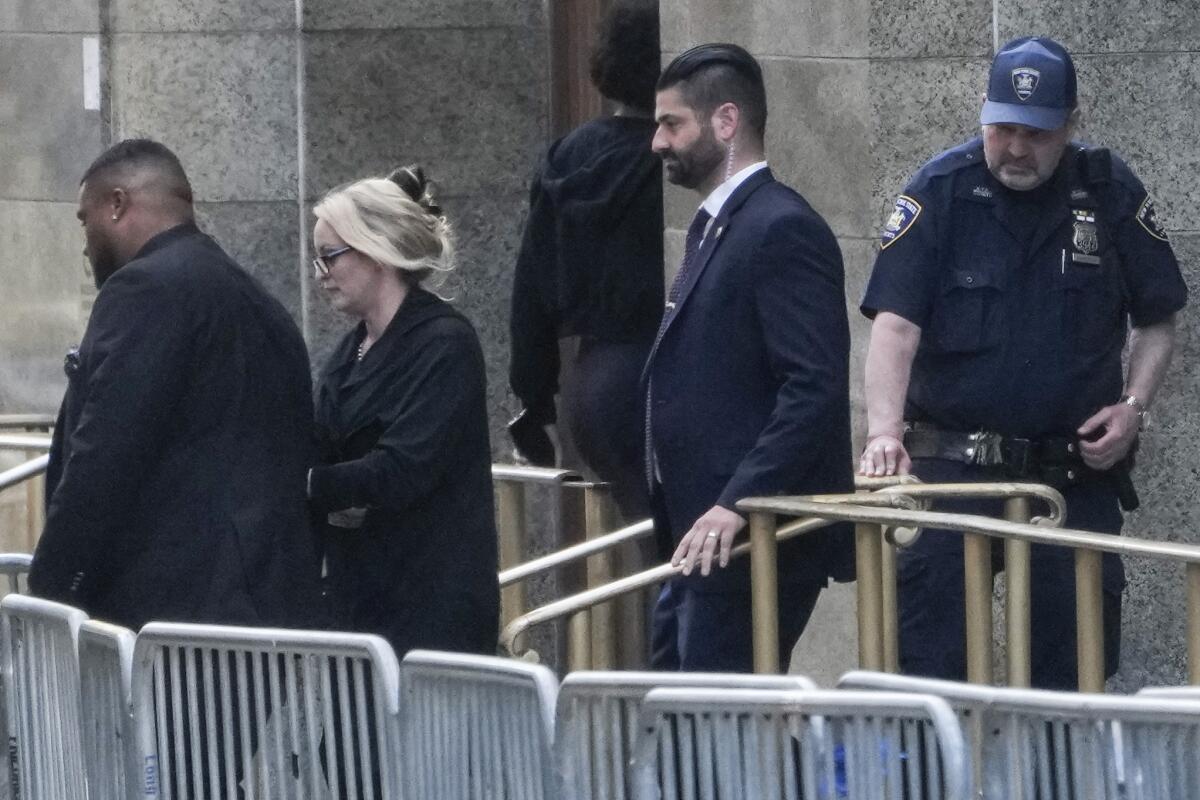
The case centers on a $130,000 payment to Daniels from Trump’s then-lawyer, Michael Cohen, in the final weeks of Trump’s 2016 campaign. Prosecutors say it was part of a scheme to illegally influence the campaign by burying negative stories about him.

Stormy Daniels describes meeting Trump in occasionally graphic testimony
The porn actor’s testimony, even if sanitized and stripped of tell-all details, has been the most-awaited spectacle in Donald Trump’s hush money trial.
May 7, 2024
His lawyers have sought to show that Trump was trying to protect his reputation and family — not his campaign — by shielding them from embarrassing stories about his personal life.
Daniels, whose real name is Stephanie Clifford, told jurors that she started exotic dancing in high school and appearing in adult films at age 23, eventually moving to direct more than 150 films and winning a roster of porn industry awards.

World & Nation
Key players: Who’s who at Donald Trump’s hush-money criminal trial
Donald Trump’s hush money criminal trial shifts to opening statements Monday, followed by the start of witness testimony. Who’s who in the case?
April 21, 2024
Meeting Trump
Daniels testified she first met and chatted with Trump at a 2006 Lake Tahoe celebrity golf outing where her studio was a sponsor.
He referred to her as “the smart one” and asked her if she wanted to go to dinner, she said. Daniels testified that she accepted Trump’s invitation because she wanted to avoid dinner with her co-workers and thought it might help her career. Trump had his bodyguard get her number, she said.
When they met up later in his penthouse, she appreciated that he seemed interested in the business aspects of the industry rather than the “sexy stuff.” He also suggested putting her on his TV show, “The Apprentice,” a possibility she hoped could help establish her as a writer and director.
She left to use the bathroom and was startled to find Trump in his underwear when she returned, she said. She didn’t feel physically or verbally threatened but realized that he was “bigger and blocking the way,” she testified.
“The next thing I know was: I was on the bed,” and they were having sex, Daniels recalled. The encounter was brief but left her “shaking,” she said. “I just wanted to leave,” she testified.
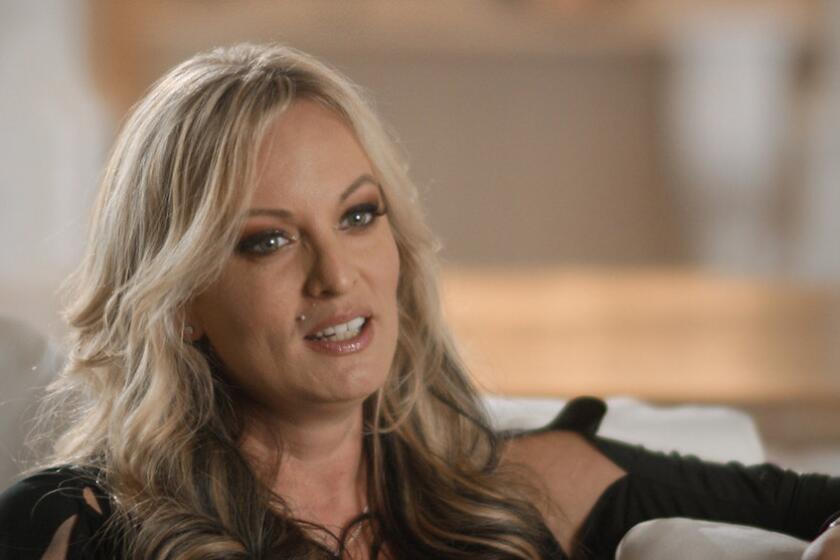
Stormy Daniels alleges in new documentary that Donald Trump cornered her the night they met
‘I have not forgiven myself because I didn’t shut his a— down in that moment’ in 2006, the adult filmmaker says in ‘Stormy,’ premiering March 18 on Peacock.
March 7, 2024
Payments for silence
Daniels was asked if Trump ever told her to keep things between them confidential, and said, “Absolutely not.” She said she learned in 2011 that a magazine had learned the story of their encounter, and she agreed to do an interview for $15,000 to make money and “control the narrative.” The story never ran.
In 2016, when Trump was running for president, Daniels said she authorized her manager to shop the story around but did not initially receive interest from news outlets. She said that changed in October with the release of the “Access Hollywood” tape in which Trump bragged about grabbing women sexually without asking permission . She said she learned that Cohen wanted to buy her silence.

Former tabloid publisher testifies about scheme to shield Trump from damaging stories
Trump is back in a New York courtroom as his hush money trial resumes. In D.C., the Supreme Court considers if he should be immune for actions while president.
April 25, 2024
Mistrial push
Midway through her testimony, Trump’s lawyers moved for a mistrial.
Defense lawyer Todd Blanche argued that Daniels’ testimony about the alleged encounter and other meetings with him had “nothing to do with this case,” and would unfairly prejudice the jury.
The judge rejected it, and he faulted defense attorneys for not raising more of their objections while she was testifying.
Before Daniels took the stand, Trump’s lawyers had tried to stop her from testifying about the encounter’s details, saying it was irrelevant in “a case about books and records.”
Prosecutors countered that Daniels’ testimony gets at what Trump was trying to hide and they were “very mindful” not to draw too much graphic detail. Before Daniels took the stand, they told the judge the testimony would be “really basic,” and would not “involve any details of genitalia.”
While the judge didn’t side with Trump’s lawyers, he acknowledged that some details were excessive. The objections could potentially be used by Trump’s lawyers if he is convicted and they file an appeal.

News analysis: Why Putin is raising the specter of nuclear weapons again
Russia announces plans to hold drills near Ukraine simulating the use of battlefield nuclear weapons.
May 6, 2024
Cross-examination
Trump’s lawyers tried to attack Daniels’ credibility, suggesting she was motivated by money and that her account has shifted over the years.
“Am I correct that you hate President Trump?” defense lawyer Susan Necheles asked Daniels at one point. Daniels acknowledged she did.
“And you want him to go to jail?” the lawyer asked.
“I want him to be held accountable,” Daniels said. Pressed again whether that meant going to jail, she said: “If he’s convicted.”
The defense pressed Daniels on the fact that she owes Trump hundreds of thousands of dollars in legal fees stemming from an unsuccessful defamation lawsuit, and on a 2022 tweet in which she said she “will go to jail before I pay a penny.” Daniels dug in at times in the face of pointed questions, forcefully denying the idea that she had tried to extort money from Trump.
Trump whispered frequently to his attorney during Daniels’ testimony, and his expression seemed to be pained at one point as she recounted details about the dinner she says they shared. He shook his head and appeared to say something under his breath as Daniels testified that Trump told her he didn’t sleep in the same room as his wife.
On the way out of the courthouse, Trump called it “a very revealing day.” He didn’t address Daniels’ testimony explicitly but claimed the prosecutors’ case was “totally falling apart.”

With oil funds and Formula One, Saudi Arabia steamrolls its way onto sports’ hallowed grounds
Saudi Arabia’s oil riches have rocked soccer, golf, even esports, and the autocratic kingdom is expanding in Formula One car racing. What’s behind the push?
May 2, 2024
Jarring split screen
Trump’s appearance in court Tuesday, like all other days he’s stuck in the courtroom, means he can’t be out on the campaign trail as he runs for president a third time. It’s a frequent source of his complaints, but Daniels’ testimony in particular might underscore how much of a distraction the trial is from the business of running for president.
While Trump was stuck in a Manhattan courthouse away from voters and unable to speak for much of the day, President Biden was attending a Holocaust remembrance ceremony and condemning antisemitism .
It’s an issue Trump has sought to use against Biden in the campaign by seizing on the protests at college campuses over the Israel-Hamas war .
Associated Press writer Price reported from New York, Whitehurst from Washington. AP writers Michael Sisak, Jennifer Peltz, Jake Offenhartz and Alanna Durkin Richer contributed to this story.
More to Read

Trump attorney and Stormy Daniels trade barbs over alleged 2006 sexual encounter
May 9, 2024

Litman: Did Stormy Daniels’ testimony help or hurt the case against Trump? It’s complicated
May 8, 2024

Trump’s hush money trial week in review: hurricanes, Hulk Hogan and a blockbuster recording
May 4, 2024
Start your day right
Sign up for Essential California for news, features and recommendations from the L.A. Times and beyond in your inbox six days a week.
You may occasionally receive promotional content from the Los Angeles Times.
More From the Los Angeles Times

Hollywood mega-donor Haim Saban slams Biden’s decision to halt weapons shipment to Israel

Body camera video shows fatal shooting of Black airman by Florida deputy in apartment doorway

California AG plans how to thwart Trump with lawsuits if he wins another term

Iowa law lets police arrest migrants. The federal government and civil rights groups are suing
AskEasy: AI ChatBot Assistant 12+
Ask chat bot・your 24/7 helper, zilingial limited, designed for iphone.
- #63 in Productivity
- 4.7 • 18.5K Ratings
- Offers In-App Purchases
iPhone Screenshots
Description.
AskEasy: simplify your life with a smart assistant! Looking for a good recipe to surprise your guests? Need ideas for a birthday party? Or some help with writing an essay or composing a resume? Simply open the app and ask! AskEasy is a real lifesaver. It finds answers to any questions, generates texts and brainstorms ideas, helps with daily tasks, proofreads and improves your content, and even acts as a fun empathetic friend always open for a chat! All you need to do is just type in your request and see how an accurate answer magically appears on your screen! What sets this app apart are its four most powerful chat models: GPT 3.5, GPT 4, Llama 2, and Gemini. These cutting-edge AI technologies ensure that you can easily choose the model that best meets your specific needs, providing tailored, intelligent responses in real-time. Have questions about a YouTube video? Or need a short summary of a video instead of watching it whole? Now, you can simply paste the video link and ask away. Our chatbot will answer your questions based on the video content and provide a concise summary of it. Need to create unique visuals for your project? Go to Image Generator and get inspiring images generated by AI in seconds! All you have to do is just to type in the text description – and see how it magically transforms into images. Moreover, you can easily get creative captions, tags and stories based on your images by using the Text to Image tool. AI understands and interprets the context and emotions of your photos, and brings the ideas of creative texts that will enhance your social media presence. With """"Upload & Ask,"""" you have the power to directly upload a PDF document and effortlessly ask questions about its content. This feature deciphers the text, providing you with precise answers and insights without the need for manual searching or reading. Meanwhile, """"Ask by Link"""" offers an equally innovative capability where you can insert a link to a web page and receive answers derived from its content. Whether it's a detailed explanation, summary, or specific information, this feature ensures you get the answers you need quickly and efficiently. Your creativity is your only limit! Experiment with your queries to discover everything the chatbot can do for you, and you will be amazed by the mind-blowing results: - Choose the chat model (GPT 3.5, GPT 4, Llama 2, or Gemini) to solve your tasks quickly and efficiently - Write anything: from tweets, email responses, and ad copies to essays, poems, and creative stories - Brainstorm ideas: new recipes, movie and song recommendations, places to go, party ideas, etc. - Check and improve your writing - Simplify your texts by summarizing them - Insert a link to YouTube video and ask your questions based on it - Get quick and concise summary of a video on YouTube - Get AI-generated images from your word description - Transform any text into visually captivating quotes - Generate captivating captions, relevant tags, or stories for your pics - Create original jokes and holiday greetings - Translate texts into other languages or even into programmatic commands - Use it for analytics and business intelligence - Get prepared for an exam or job interview - Or simply check out your daily horoscope! Features: - Smart chat for iPhone - GPT 3.5, GPT 4, Llama 2, and Gemini support - Spell and grammar check - Images Generator - Quote Maker - Text for Image - “Ask by Link” and “Upload & Ask” features - Ask Youtube and Youtube Summary - Text writing and facts search - History of your queries - CV and social profile builder - Clear and smart design - Simple and blazingly fast to use Privacy Policy Url - https://mychat-ai.cloud/pp Term Of Use Url - https://mychat-ai.cloud/tou Support Address - [email protected]
Version 2.1
Why update the app that already works great? To get the most out of it, of course! The benefits of the new version: —Flawless bug-free experience —Improved user interface and app's navigation Your positive reviews in the App Store will inspire us to new achievements!
Ratings and Reviews
18.5K Ratings
Ok so I have a problem
The concept of having ai write you a story is amazing. The stories are amazing. But, what good is it if it doesn’t give an ending. It doesn’t have to be long to end well. But it leaves you hanging. Not a fan of that. Especially since I paid for it UPDATE: ok, so I changed most review from three stars to 5z mainly because regardless of if the story ends or not, I’m able to end it myself quite well. I enjoy the app and it helps me a lot in my work
Developer Response ,
Dear Juliabrown1966!!!!!Thank you for your feedback. We apologize for the inconvenience caused and we understand your frustration with the limitations you've encountered in the application. The application has certain restrictions in place due to server limitations and the significant computing resources required for advanced AI technology like GPT-4. These limitations are in place to ensure the app's performance and availability for all users. We have increased the limit of characters to the maximum allowed from GPT itself and we cannot go beyond it. Thank you for understanding. Warmest regards, AI ChatBot: Smart Assistant Support Team
Not as described
Right after installing presented programs not functioning, i didn’t get try all, with in two minutes was forced to rated with 5 stars if i was too quick to press buttons. I didn’t even get to read what was the gpt’s response to me but as it was typing things really fast noticed everything being typed was flickering like screen power is too low. Remember after 3 days i trial you will be charged automatically. This look good but just like most of them, taking a freeware altering in some cases not much from the original and start chasing the money with tricks and dancing around the truth with lies. I think today’s browsers gpt is good as most of these tricksters version unless you need a serious one for school or work then I suggest getting a real one pay a few more dollars than what these people are asking and have a real one, if that’s not the case stick with ones as browsers add on is my opinion.
Dear User! We are very grateful to you for taking the time to leave us a review. We consider a customer-centric approach and always put ourselves in our customer’s mind. That way, we can align the learning experience with their expectations and improve our application. We will definitely take into account the fact that the users need more time to evaluate the application and will not force them to rate the app too quickly. We have our users' best interests at heart and will continue to work tirelessly to better ourselves and our application. Best regards, AI ChatBot: Smart Assistant Support Team
Concern over longevity
I have tried numerous AI Assistants. And this one, by far, is my favorite. I even went so far as to opt in for paying for full features. However, as an assistant or even aid, it is limited and out dated. When querying about the up-to-date information it could provide me, my assistant informs me that it is only as up-to-date as 2021. So, I queried about when the databases may be updated. And there was no information on that. The databases are already years behind and this is concerning. I didn’t pay to have something that can’t actually do as it is alleged to be able to perform. I can google and get more current information.
Dear Crashed and Lost! Thank you for your feedback and for choosing our AI ChatBot as your favorite assistant. We apologize for any inconvenience caused by the limitations of the up-to-date information provided. We are constantly working on improving our databases and ensuring the latest information is available. But as we use the official open AI api and their system is based on data up to 2021, the assistant informs you that it is only as up-to-date as 2021. Best regards, AI ChatBot: Smart Assistant Support Team
App Privacy
The developer, Zilingial Limited , indicated that the app’s privacy practices may include handling of data as described below. For more information, see the developer’s privacy policy .
Data Used to Track You
The following data may be used to track you across apps and websites owned by other companies:
- Identifiers
Data Not Linked to You
The following data may be collected but it is not linked to your identity:
- Diagnostics
Privacy practices may vary, for example, based on the features you use or your age. Learn More
Information
English, French, German, Italian, Japanese, Korean, Portuguese, Simplified Chinese, Spanish, Traditional Chinese
- AI ChatBot: 1 Week Access $7.99
- AI ChatBot - 1 Week Access $7.99
- AI ChatBot: Access for 1 Year $49.99
- AI Chat Bot: Weekly Access $7.99
- AI ChatBot: 1 Week Access $4.99
- AI Assistant - 1 Month $19.99
- AI ChatBot for 1 Year $19.99
- AI ChatBot: 1 Year Access $49.99
- AI Helper for 1 Week $4.99
- AI ChatBot: 1 Year $39.99
- Developer Website
- App Support
- Privacy Policy
More By This Developer
AI Wallpapers & Widgets - Flex

IMAGES
VIDEO
COMMENTS
Read all about writing a professional biography, including 50 interview biography questions you can ask yourself and example bios to guide your own professional biography. ... we define what a biography is, show why a biography is important, list 50 interview biography questions and provide examples of professional biographies. Read more: Key ...
The biography questions listed here are designed to uncover the personal and human side of these figures, providing insights into their daily lives, relationships, and personal philosophies. Students can gain a broader perspective, going beyond the standard facts and dates to truly connect with these individuals on a more personal level.
Whether you are writing a biography for a loved one, a historical figure, or a notable personality, having a list of well-thought-out questions is essential to gather all the necessary information. ... Before diving into the list of questions, it is crucial to understand that every biography is unique, and the questions you ask will depend on ...
Conduct relevant interviews. Whenever possible, seek firsthand accounts from those who knew or interacted with the subject. Conduct interviews with family members, friends, colleagues, or experts in the field. Their insights and anecdotes can provide a deeper understanding of the person's character and experiences.
Facebook. These are just some of the story elements you can use to make your biography more compelling. Once you've finished your manuscript, it's a good idea to ask for feedback. 7. Get feedback and polish the text. If you're going to self-publish your biography, you'll have to polish it to professional standards.
6. Make a timeline of a person's life. To help you organize your research, create a timeline of a person's entire life, from birth. Draw a long line on a piece of paper and sketch out as many details about a person's life as possible. Highlight important events or moments on the timeline.
The types of questions we ask influences the data that is gathered and how the interview progresses. Open-ended questions ... In writing a biography, describing the scene is essential - the interview can yield valuable, rich insights into helping you describe the scene. Lee Gutkind recommends that when a scene or experience is discussed, ask ...
From here, you should have the information you need to settle on your structure. This will give you an idea of which outline best serves the facts. From that outline, you can begin organizing each of the sources and facts you've gathered until you've assembled a blueprint of how the final biography will look.
8. Send a copy to your subject. Consider sending a copy of your manuscript to the person whose life you wrote about in your book. The copy may serve as a thank-you gift, but also, if you intend to publish your work, you will need them to approve, as well as fact check, everything you put into the story.
If you're interested in writing a biography, the following steps can get you started: 1. Get permission. Once you've chosen the subject of the biography, seek permission to write about their life. While in some cases it may not be necessary (like if the subject is a public figure or deceased), getting permission will make the research ...
1. Go for a chronological structure. Start chronologically from the subject's birth to their death or later life. Use the timeline of the person's life to structure the biography. Start with birth and childhood. Then, go into young adulthood and adulthood.
Here are my favorite questions to ask when writing a bio. Note: these don't include the usual slew, like general career experience and education. 1. Who is someone you admire, and why? 2. Tell me three pet peeves. 3. What's a typical day like for you? 4. Do you have any skills or talents that most people don't know about? 5.
Interviewing for biography takes inspiration from the scientific approach of academia, the tenacity of journalism and the transparency of oral history. In 'Life Story Interview', Atkinson said, "the life story interview can be approached scientifically, but it is best carried out as an art". This article discusses different approaches ...
These 351 writing prompts and questions are part of a 28 article, 108 category series entitled " 7,500-plus Questions About Life to Ask People When Writing Narratives .". I have divided the writing prompts and questions to ask others into the following categories. Click on the category to be taken to the questions.
7. What did an ordinary day in your life look like? 8. Name a big success story for you during this time. 9. Did you travel? What was your most memorable vacation? Hopefully writing your biography just got a little easier and these prompts have got your brains in gear, recalling all sorts of different memories from your childhood all the way ...
By doing your research and asking the right questions, you can craft a biography that will help readers better understand the person you are writing about. Career History Questions . When it comes to writing a biography, it is important to ask questions that will give you a comprehensive picture of someone's life, career, and accomplishments ...
I have developed long list of questions and have been practicing ways to interject follow up questions such as "You mentioned '(interviewee quote)' can you tell me more about that?". My problem lies in the questions I formulated. I went from basic questions hoping that the person would provide great detail to more specific open-ended questions.
BIOGRAPHY WRITING Tip: #4 Put Something of Yourself into the Writing. While the defining feature of a biography is that it gives an account of a person's life, students must understand that this is not all a biography does. Relating the facts and details of a subject's life is not enough.
Including Basic Details. Date and place of birth and death. Family information. Lifetime accomplishments. Major events of life. Effects/impact on society, historical significance. While this information is necessary to your project, these dry facts, on their own, don't really make a very good biography.
Keep it simple. As well as starting with easier questions, keep the conversation simple by asking only one question at a time: avoid double-barrelled questions. Asking more than one question at a time may result in the interviewee choosing to only answer one part, either intentionally or simply because they forgot and if they forget, it means ...
Here are my personal tips to write an impactful biography of a world leader. How to Write a Biography of a World Leader. Stage 1: Decision Making. Before writing the biography, make sure you can resonate with the qualities of the leader to ensure you're writing a positive biography. This 'decision-making stage' is when you listen to all ...
After 17 years of listening, we know what makes a great conversation: Ask great questions. Here are some of our suggestions for getting a good conversation going. We encourage you to use the ones you like and to come up with your own.
70 Autobiography Questions for Students. The first thing you should remember when writing an autobiography is that all types of clichés can kill your paper. The standard scheme "was born - went to school - went to college" won't impress anyone. However, the following autobiography quiz, which contains the most common questions, can ...
The difference was I knew how to write my résumé. I knew how to become the candidate that they needed. My formula is to map your résumé to the career you're going to, not the career you've ...
He referred to her as "the smart one" and asked her if she wanted to go to dinner, she said. Daniels testified that she accepted Trump's invitation because she wanted to avoid dinner with ...
The IB is aware of speculation that aspects of May 2024 exam content have been shared online by students. In response to the significant amount of misinformation currently circulating online, we would like to reassure our community that students will receive valid, recognized and meaningful results.
Tom Finley. Tom Finley is a professor emeritus of Old Testament and Semitics at Talbot School of Theology at Biola University. Finley's area of expertise is Northwest Semitic languages, specifically Hebrew and Aramaic. He authored the Wycliffe Exegetical Commentary (Joel, Amos, Obadiah) (reprinted by Galaxie Software), the Everyman's Bible (Commentary on Joel, Obadiah, Micah) (Moody), and co ...
The judge ruled that prosecution lawyers can ask Daniels for background information about the events leading up to the encounter. Advertisement Merchan : But we don't need to know the details of ...
- Write anything: from tweets, email responses, and ad copies to essays, poems, and creative stories - Brainstorm ideas: new recipes, movie and song recommendations, places to go, party ideas, etc. - Check and improve your writing - Simplify your texts by summarizing them - Insert a link to YouTube video and ask your questions based on it